Supporting
Stability
Building
Resilience
Supporting
Stability
Building
Resilience
2023 ANNUAL REPORT
CONTENTS
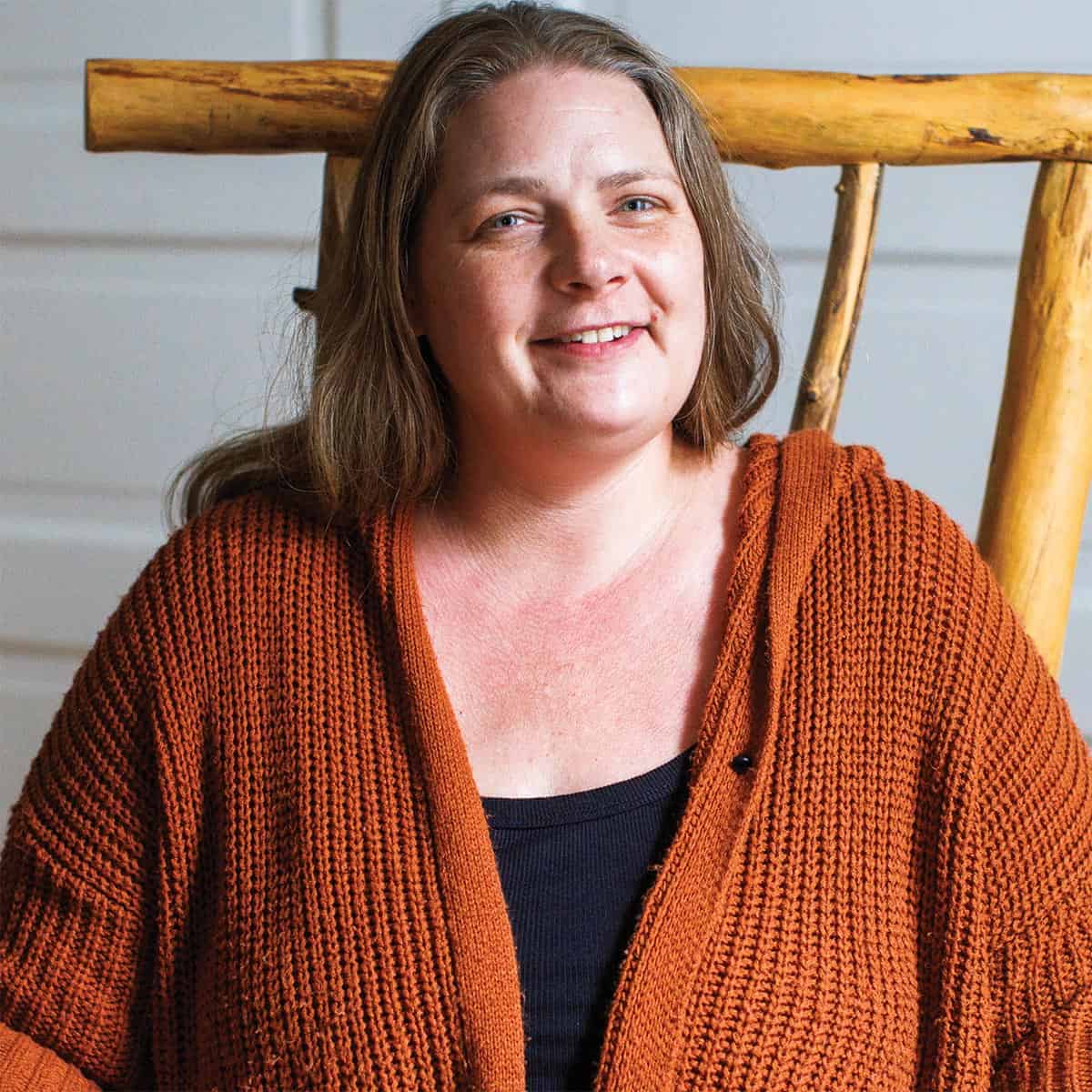
‣ A Tale of Transformation

‣ Restoring Peace of Mind Through
the Home Repair Program
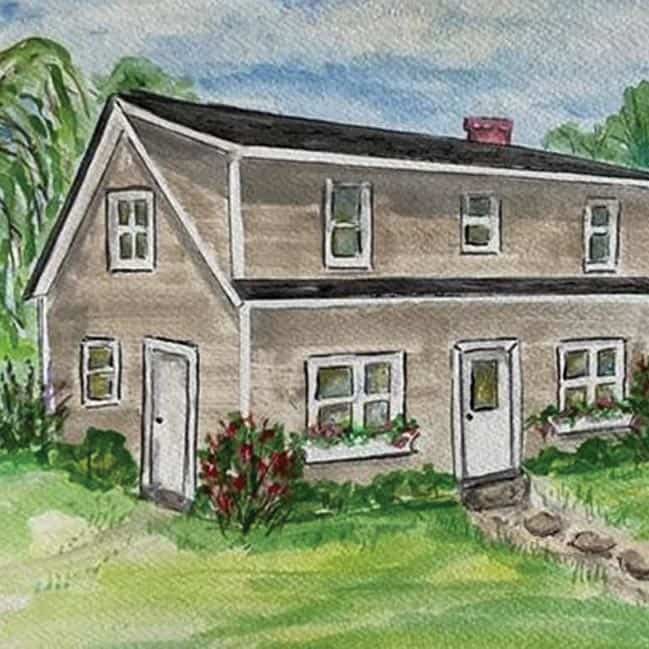
‣ Addressing the Need in Rural Vermont
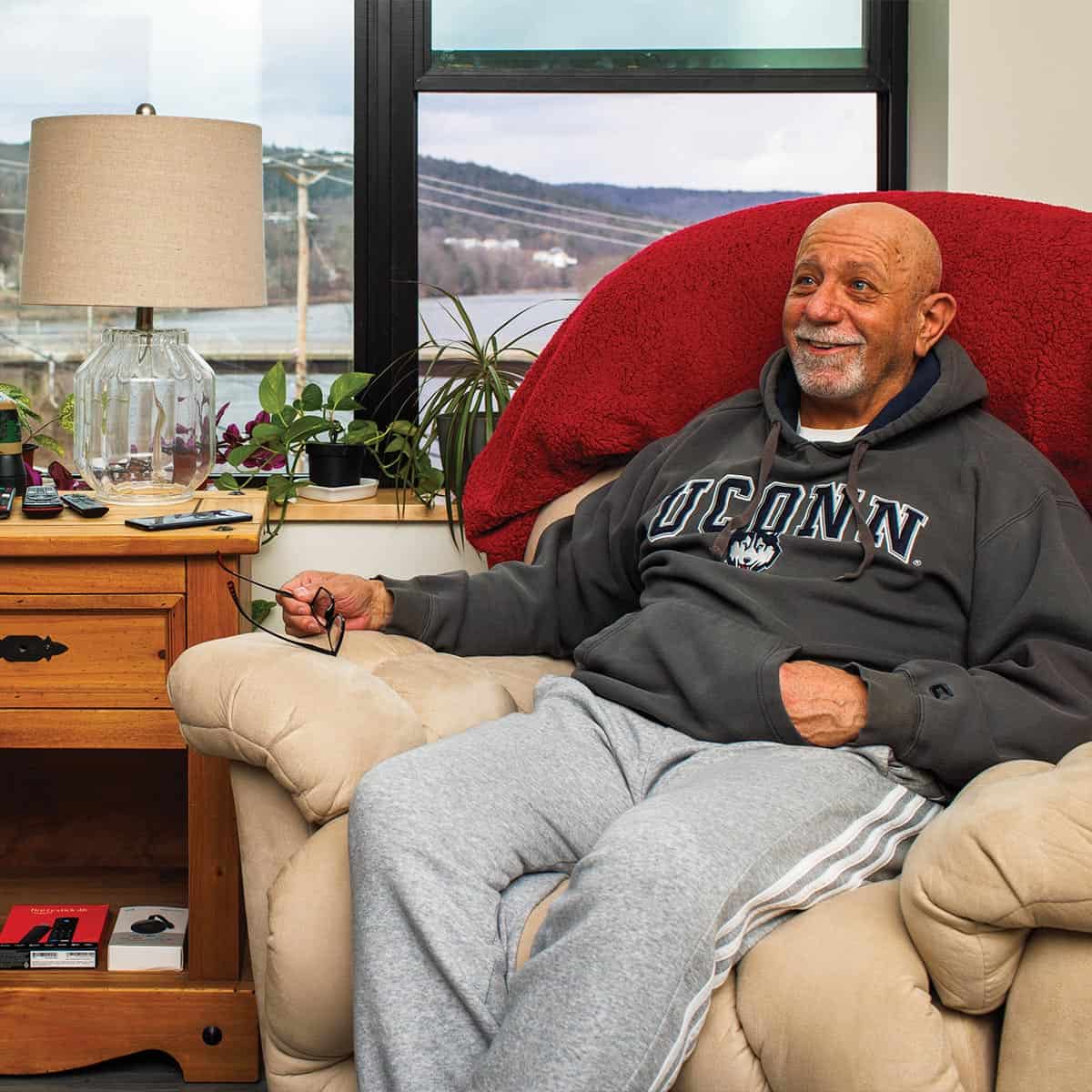
‣ Restoring Health Through Housing
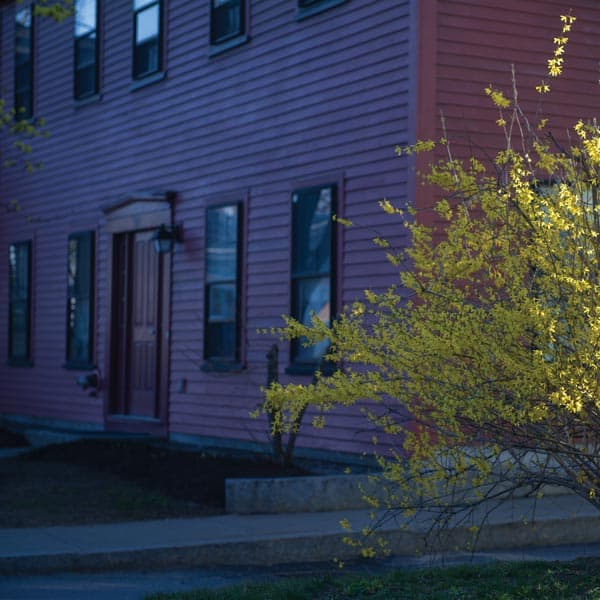
‣ Answering a Collective Call to Action
in Solidarity
A NOTE FROM OUR DIRECTORS
Supporting Stability,
Building Resilience

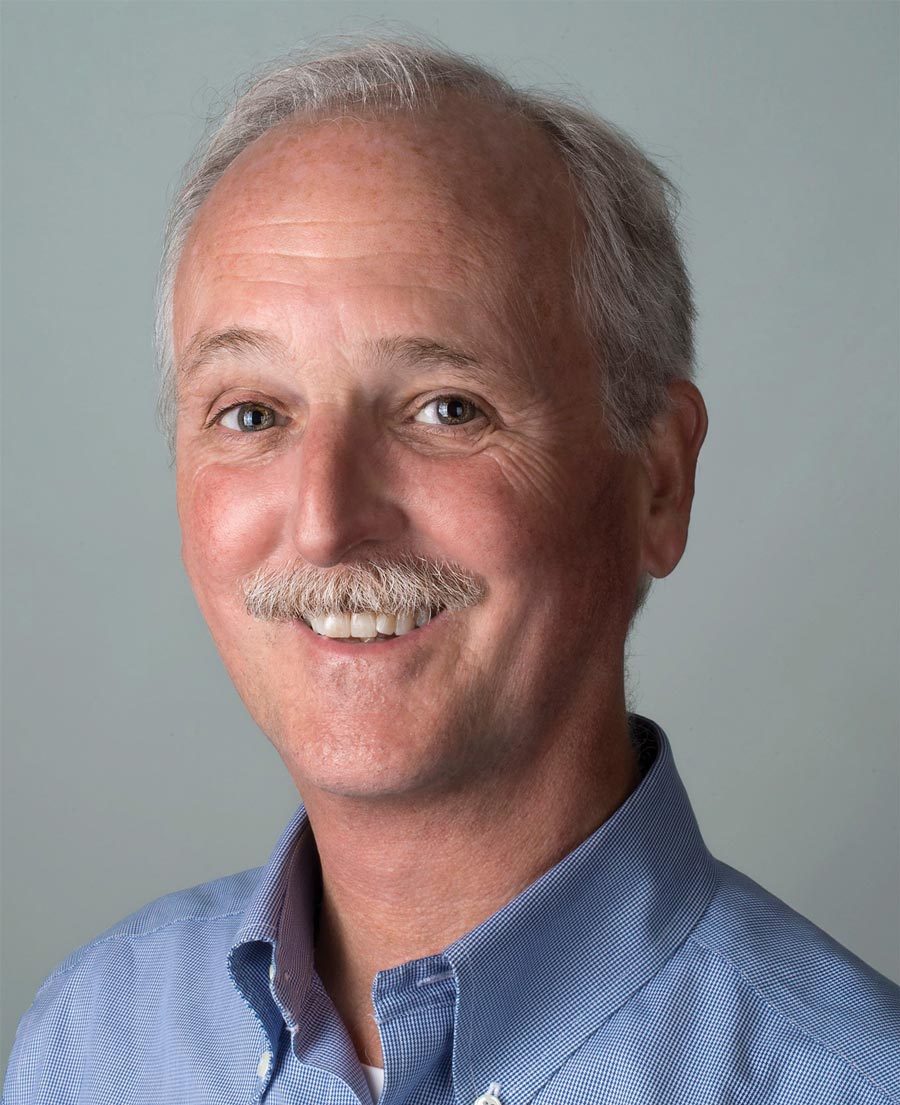
Dear Housing Trust friends,
As we reflect on the past year, it is with immense pride for the communities we serve and for our collaborative work together. The resiliency of the people in Southeastern Vermont has been demonstrated many times over the years, but in 2023 it was put into practice in extraordinary ways. As we look back, we can clearly see the impact of this collaboration and collective action that not only lifted each other up in times of intense challenge—an extreme lack of housing, damaging climate change events, societal issues putting pressure on our communities, loss—but also leveraged each other’s strengths to accomplish positive outcomes.
By sharing some of these stories, we hope that you will be as inspired as we have been. You may even locate yourself on the following pages because you either directly collaborate with the Housing Trust or you support us in making an impact in people’s lives in tangible and meaningful ways. You’ll hear from our program participants like Krystal, a long-term resident on Clark Street in Brattleboro, who was relocated temporarily while her home was being fully renovated. She was supported with such care and intention by the Housing Trust’s Development and SASH for All staff that now, after moving back into her newly revived space, she’s harnessed her entrepreneurial spirit and launched her own business. Steve will tell you about how he finally found a permanent and stable home at the Bellows Falls Garage, returning to a community that he’s had ties with for decades. Kimiye, with the support of our Green Mountain Home Repair team, retained her home insurance, addressed her home safety concerns, and gained a new sense of empowerment as a homeowner. These first-hand stories open a window into the tremendous impact that creating and retaining housing has on peoples’ lives.
The story of Londonderry is one of a community that identified the need for affordable housing and rolled up their sleeves to address this need. By working with Director of Homeownership Bruce Whitney, they were able to access state funding to transform a donated vacant lot into a new volunteer-built 3-bedroom home for Kara and her kids, a home that will remain affordable to future homebuyers in the generations to come. And the story about the work of our property management team highlights how important collective action is when deeply challenging events occur in the community.
Above all, we know that the stability and wellbeing of our community is fostered through collaborations and connections at both the neighborhood scale and at the regional level. Creating new rental and homeownership opportunities and providing services to the residents of these homes is accomplished by all of us. We are deeply grateful to our system of support that makes this possible: funders, partners, community members, donors, policy makers, vendors, and members.
With gratitude,
Executive Director

Board President

KRYSTAL’S STORY:
A Tale of Transformation
Krystal is a resident in WWHT’s Clark Street property in Brattleboro, where she has lived for 12 years with the singular focus of raising her three children in a safe environment after enduring an unimaginable family trauma. Her building — one of the oldest in the Housing Trust rental portfolio — was one of seven properties that underwent a deep retrofit this past year. As she dealt with the challenge of relocation, as well as the trauma coming to a head, Krystal herself underwent a personal metamorphosis that has given her a new sense of purpose. She says it all began when Lisa from the Housing Trust knocked on her door.
“When Lisa came to my apartment for the first time with information about the renovations, I was actually on the phone with an attorney,” explains Krystal. “My son’s father had been a victim of violent crime, and after twelve years the case was finally going to trial. So I was in a bit of shock when I answered the door. And then I found out I had to move. It all happened at the same time — it was all a bit much.”
She says Lisa took the time to fully explain the relocation process and made it clear she would be supported every step of the way. “They hired movers and made it as easy as possible for us,” says Krystal. “That was really nice — doing it myself would have been too much for me to handle.”
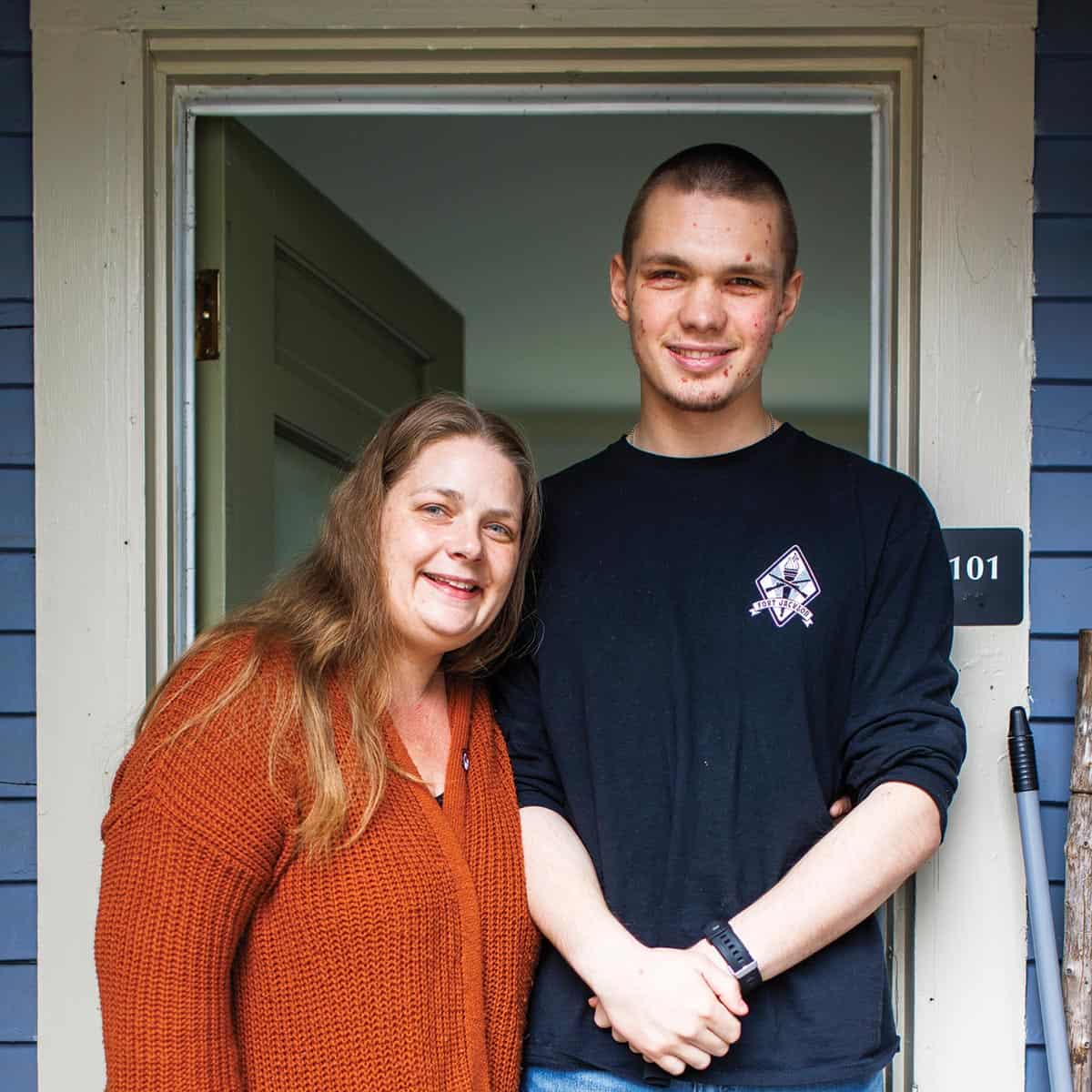

When it was time to move back into her apartment, Lisa hired a professional organizer to help Krystal sort through her belongings, and get rid of things she didn’t need. She says the experience opened a window of opportunity. “At this strange apex of turning 40 and all these other things going on, energetically I felt like it was time to unburden my space, and focus on me for a change.” She started exploring the idea of starting her own business.
Back in her newly renovated and organized home on Clark Street, and supported by weekly sessions with her therapist, Krystal is now finalizing the business plan for her e-commerce site, KCarrollStudio. She has already opened an online shop on Etsy, and lists an inventory of almost 100 gift items.
“I am excited about my new plan, I’m working very hard to make it and to attain stable success,” says Krystal. “I do want to say that, none of this would have happened if it wasn’t for Lisa Kuneman knocking on my door. I don’t think she even knows the impact she’s had. She cared enough to point me in the right direction, and that has changed everything for me.”

KIMIYE’S STORY:
Restoring Peace of
Mind Through the
Home Repair Program

KIMIYE’S STORY:
Restoring Peace of Mind Through the Home Repair Program
Kimiye lives in White River Junction, in a two-story home she and her husband bought in 2010. When her husband, a veteran, died eight years ago, Kimiye found herself in unfamiliar territory, facing the burdens and responsibilities of homeownership on her own. Her widow’s pension barely covered the mortgage and utilities. As a woman diagnosed with schizophrenia, Kimiye felt particularly vulnerable.
“Due to my mental illness, I am on Social Security,” Kimiye shares. “I didn’t have much money, and it took almost nine months to get that widow’s pension, and for all those months I owed the mortgage. I almost lost my house — that was not easy to go through.”
With the help of a trusted friend, Kimiye was able to refinance her home loan and switch insurance carriers to lower her mortgage payments. When her new insurance company sent her a list of home repairs that needed to be done, Kimiye faced another financial crisis.
“The insurance company wanted all this stuff done, they wanted the trees cut down, they wanted work done with the chimney, I needed the roof repaired — I really didn’t have the money for any of it,” she says.
After her first contractor proved unreliable, Kimiye was told about Windham & Windsor Housing Trust, and the Green Mountain Home Repair program. Dave was the specialist who came to assess the project. Kimiye was impressed with his knowledge and expertise, and WWHT’s holistic approach to home repair.
“They want to make sure your house is fine, your electricity is fine as well. So he came and went through the whole house — took pictures, looked over the electrical circuits, the basement, everything.”
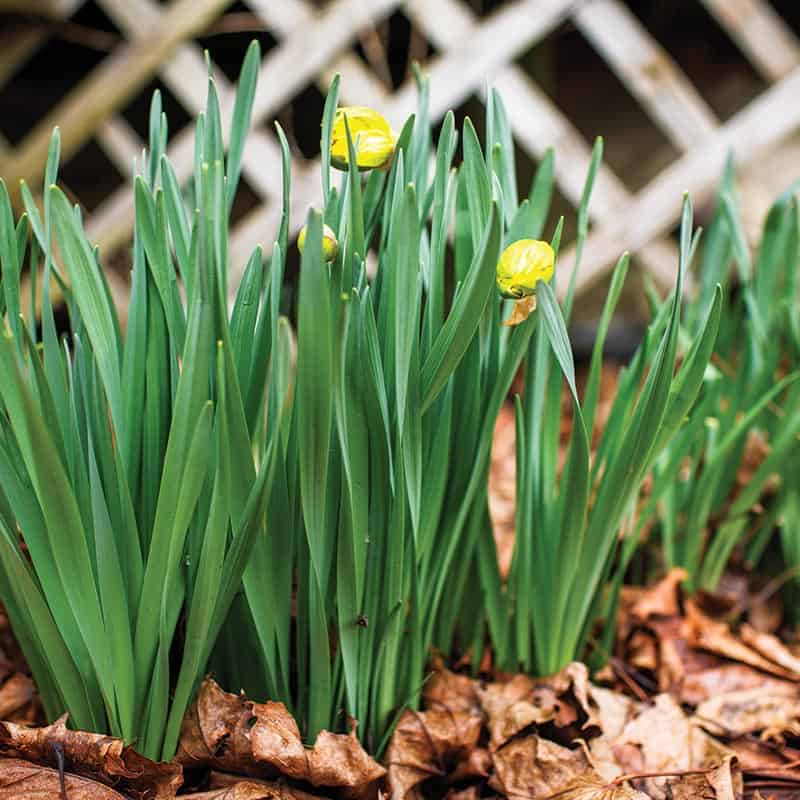
Kimiye received an estimate for all the work that needed to be done, and was approved for a low interest loan. She was surprised and relieved to learn she could afford to have all the required work done.
“They were going to do the roof, the eaves and the chimney, plus the electric repairs — everything the insurance company wanted done. They went over how much my payments would be, and it was an amount I could afford.”
Now that the work is complete, and Kimiye has a new insurance company, she reflects on the importance of the GMHR program with gratitude.
“It’s pretty scary when you don’t know anything about construction, houses, roofing and all that. And then people start quoting prices that you can’t afford. What are you supposed to do? How are you going to get this done? It’s hard to know who you can trust. I’m so glad I found the Housing Trust. They work with you, and help make it affordable.”
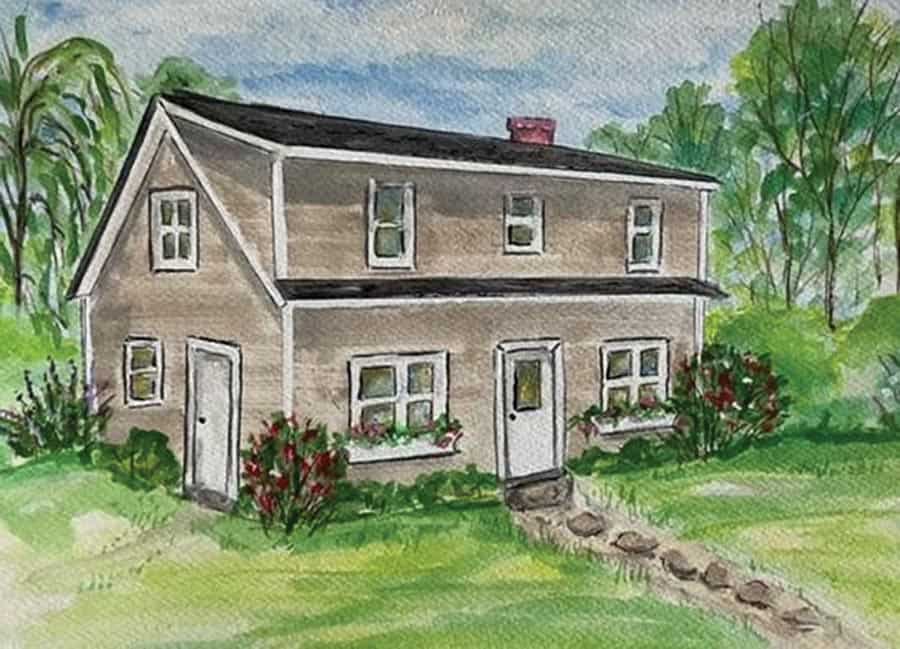
Mountain Towns Housing Project:
Addressing the Need
in Rural Vermont
An idea that was sparked four years ago in a community church has become a dream come true for the Corlew family in Londonderry. Kara Corlew, a single working mother of two young children, is now a first-time homeowner, thanks to the extraordinary efforts of an entire community spearheaded by the Mountain Towns Housing Project.
It all began when a guest speaker from the Bennington County Habitat for Humanity spoke to a gathering at the Second Congregational Church in Londonderry. Deeply moved by the presentation, a local couple came forward offering to donate a piece of property in the hopes that an affordable house could be built on it. During a year-long process of exploring the best way to move forward with this rare opportunity, a group of interested community members from a number of area towns organized a steering committee, and ultimately formed the Mountain Towns Housing Project (MTHP) under the Church’s 501(c)(3) nonprofit status.
Cynthia Gubb serves as the fundraising chair for the MTHP, and has been a dedicated member of the group from the very beginning.
“We wanted to base our project on the Habitat for Humanity model, where we would build a house and then sell it at an affordable price to a family, and then try to figure out how to keep it affordable in perpetuity,” she says. “We had to find our own way forward. It took almost a year and a half just to break ground.”
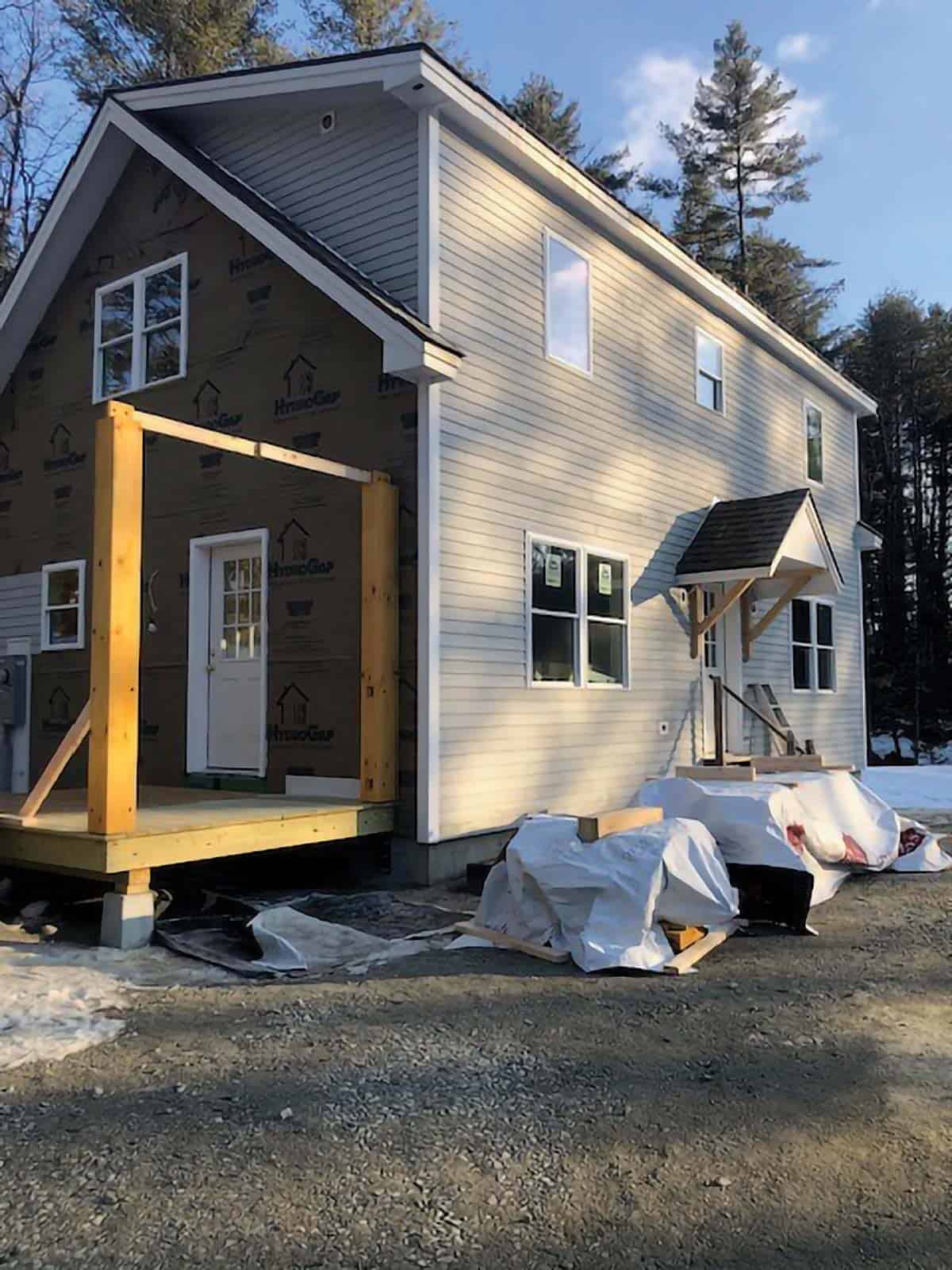
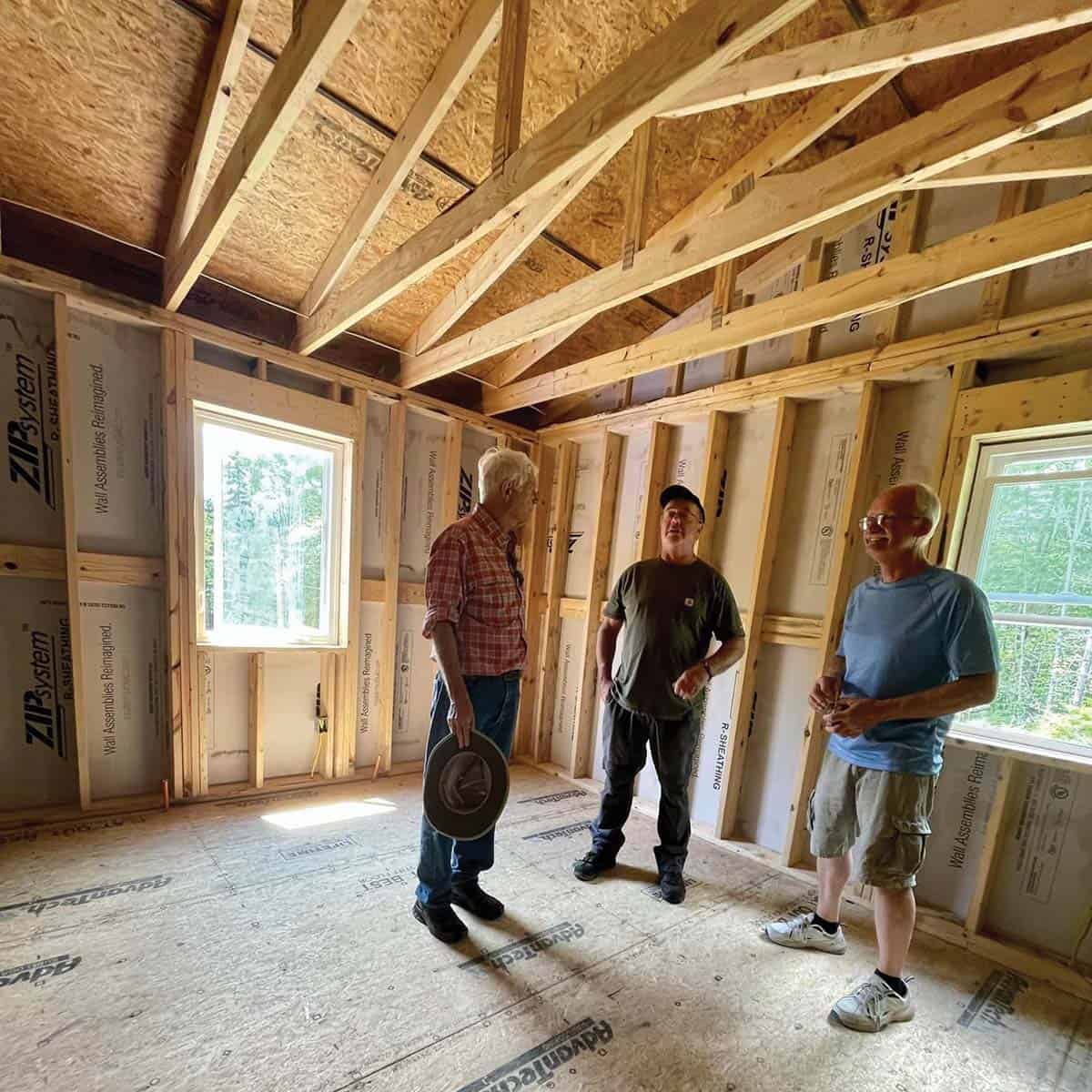
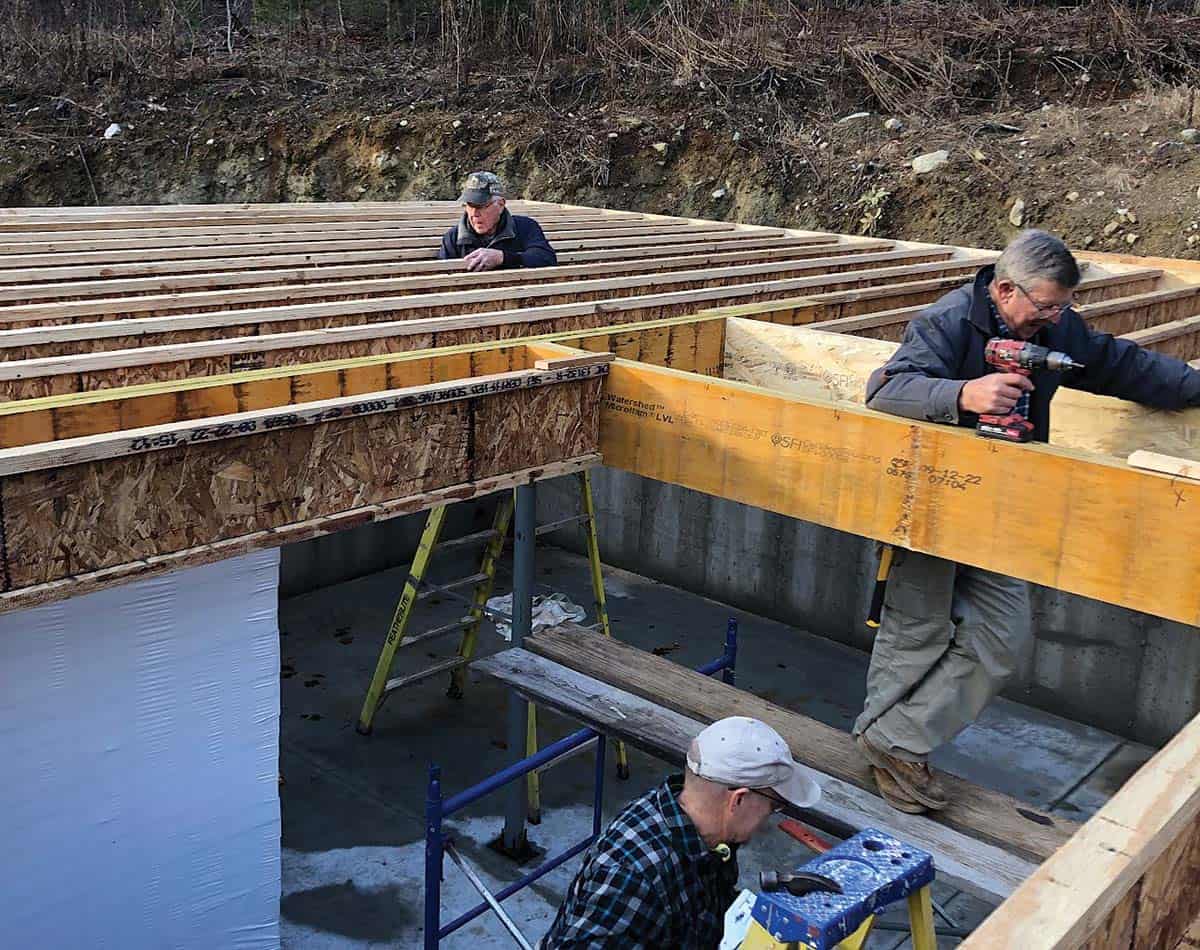
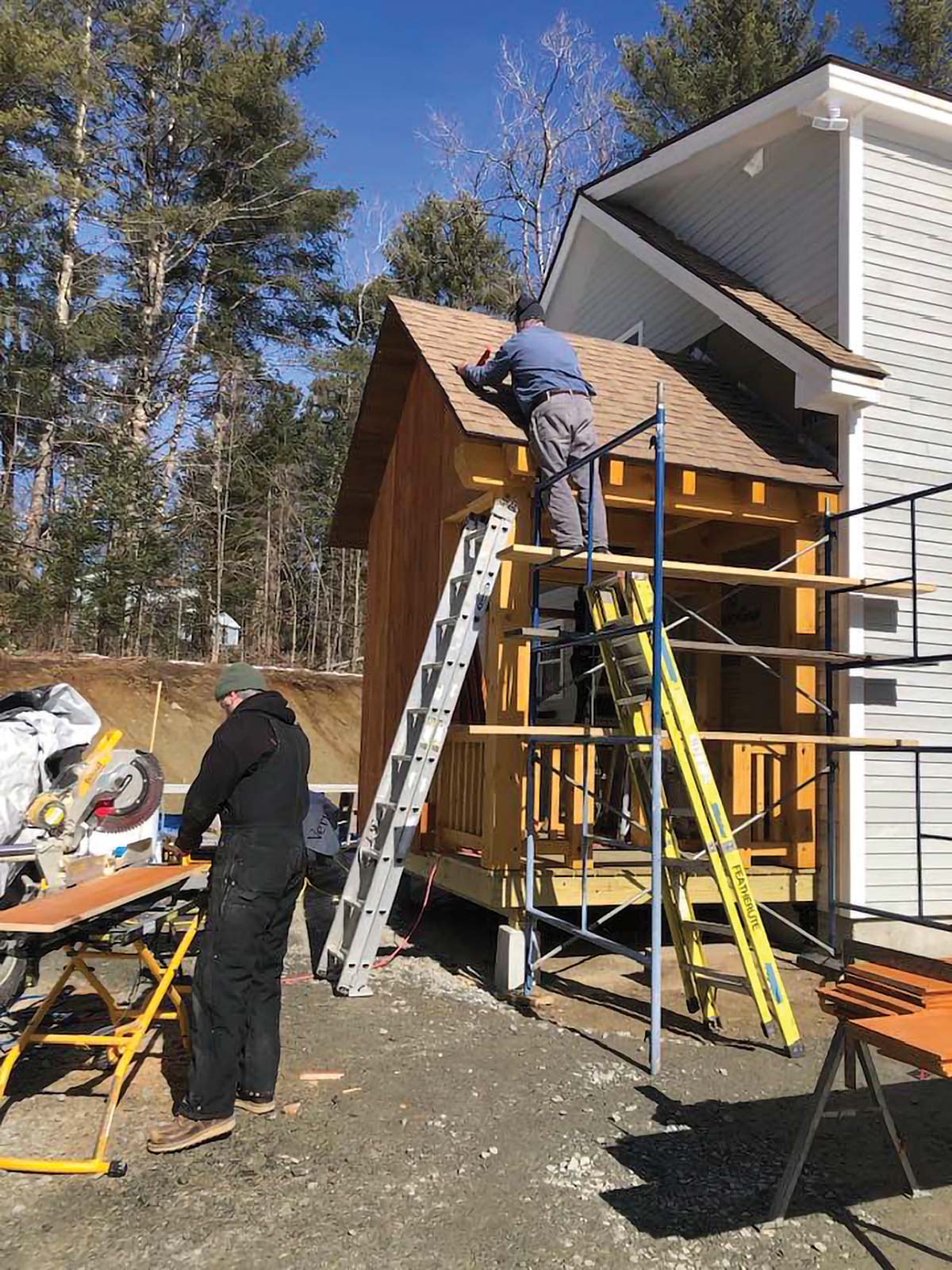
We were just really fortunate to have people in town that recognized this huge need, and were willing to help.
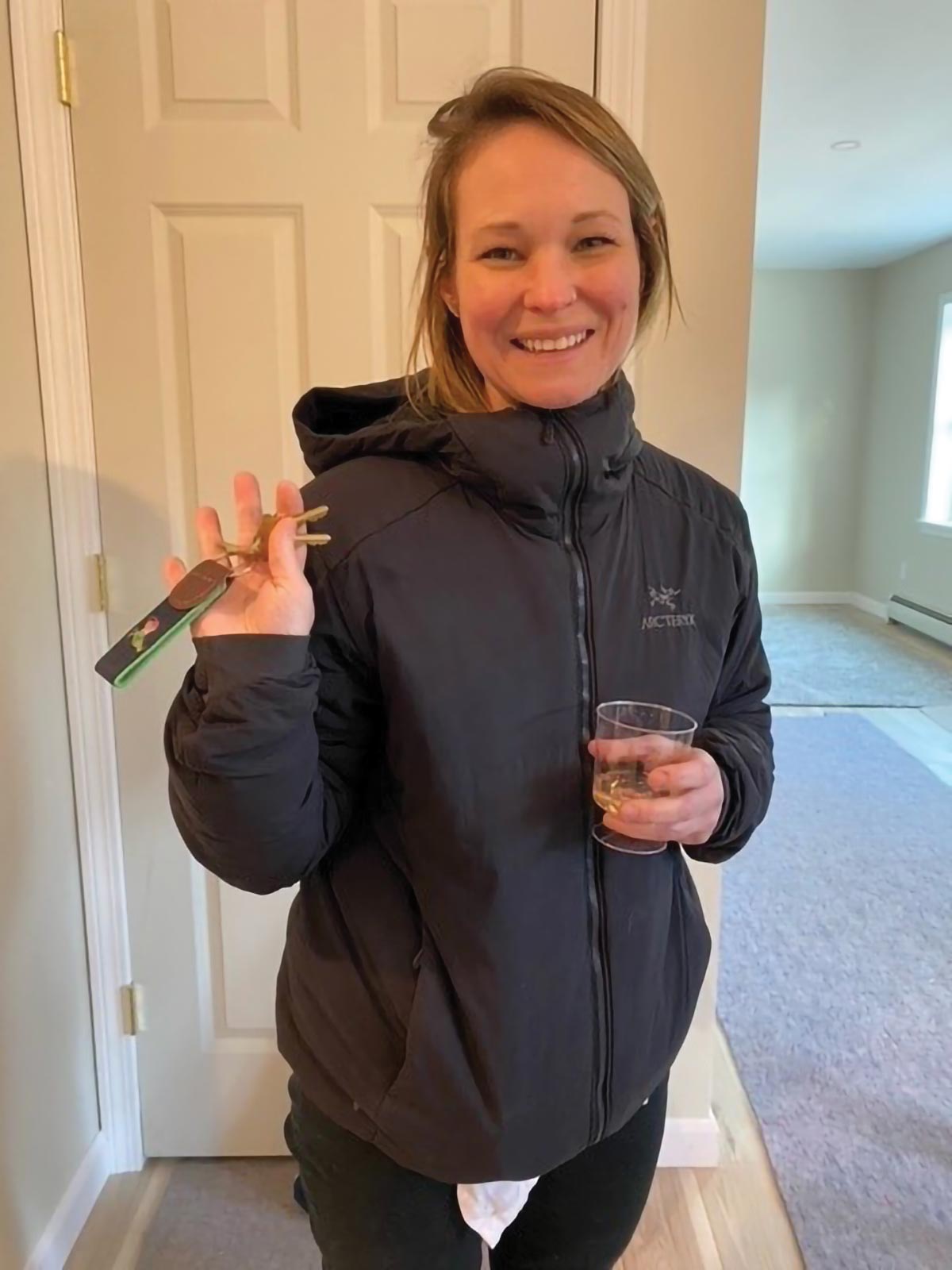
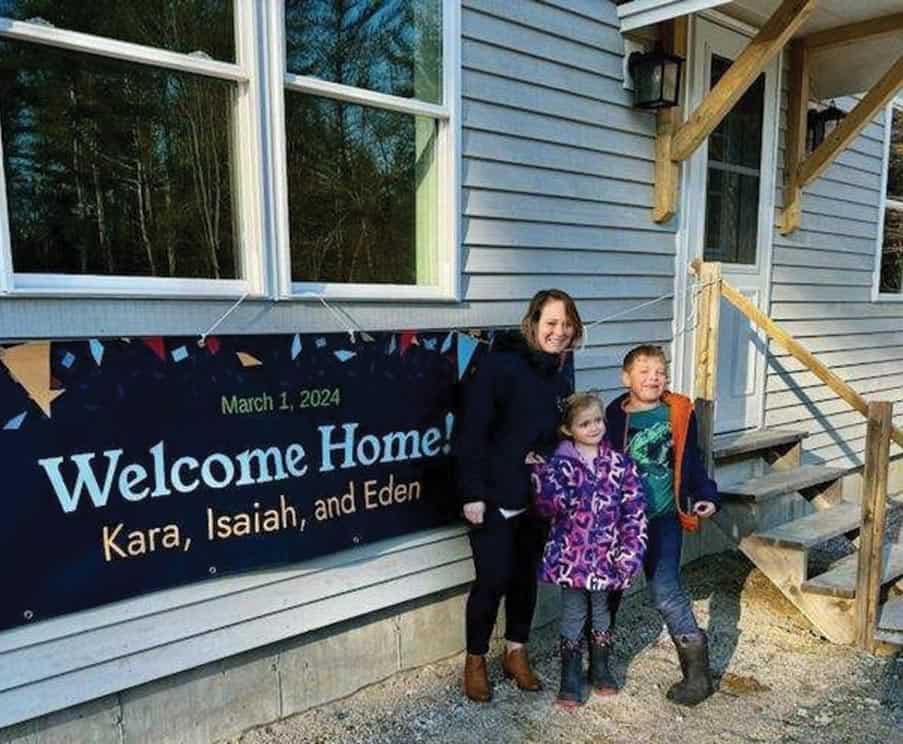
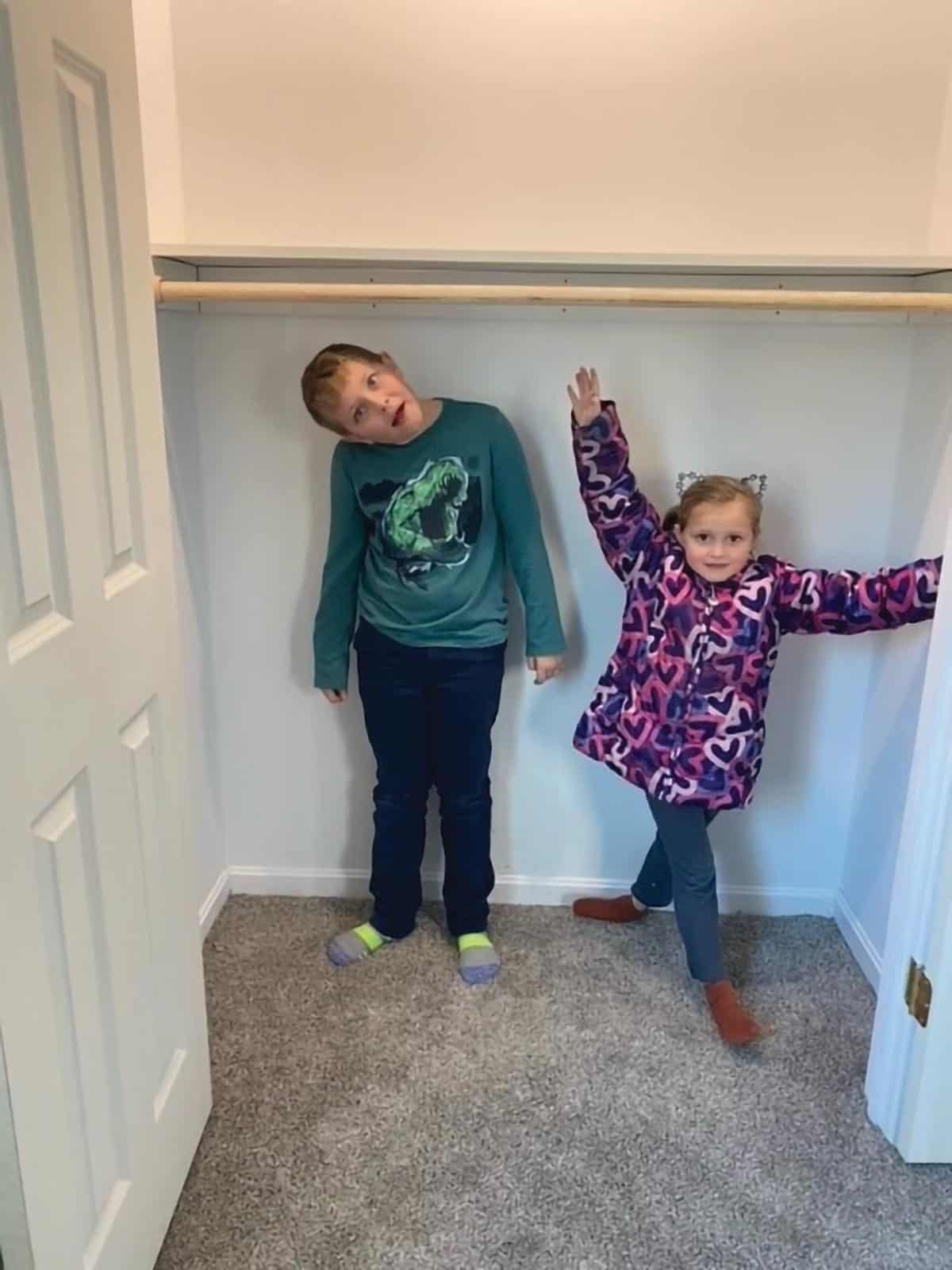
The group launched a fundraising campaign, and appealed to local contractors and volunteers to donate products, services and time. “We found so many people who were willing to volunteer,” says Cynthia. “The Rotary Club was a big help. One of our contractors, Hunter Excavating, was a huge help in getting other contractors on board. The plumber was extremely generous and donated everything, even the materials. We were just really fortunate to have people in town that recognized this huge need, and were willing to help.”
As a WWHT board member, Cynthia knew the Housing Trust could help her group with some of the technical aspects of the complex process of building — and funding — an affordable house. She reached out to Bruce Whitney, Director of Homeownership for WWHT.
“Bruce provided untold hours of technical advice,” she says, “and helped us identify significant grant opportunities. We were able to get an $80,000 grant from the Vermont Housing and Conservation Board, and then we successfully applied for a Missing Middle grant from the Vermont Housing Finance Agency. That was huge.”
Bruce also arranged for the house to be part of the Shared Equity program, ensuring that it would remain affordable in perpetuity. And because of the work that the Housing Trust does every day, he was able to help set up the parameters for selecting a family. “It was really important that the family could be successful homeowners,” says Cynthia. “We had five applicants, and with Bruce’s help and experience, we were able to make the best selection.”
The Corlew family moved into their new home on Bob Perry Lane shortly after the closing on March 1. Because the home was part of WWHT’s Shared Equity portfolio, Kara was able to access a down payment grant as well as a low interest mortgage.
“It’s very moving and very rewarding to see us reach this point and turn over the keys to Kara,” says Cynthia. “At the closing, she was just so moved, she was almost speechless. She is just so grateful that she has this opportunity.”
“Being able to purchase this house means the world to all of us,” says Kara. “The kids are excited they’ll have their own room and can choose their favorite color to paint their rooms, they’ll be able to ride their dirt bikes, we can have a garden and grow our own vegetables — it’s just such an amazing opportunity for us and we are so deeply grateful to all those who made this possible for us. It truly is remarkable.”
Its success notwithstanding, the effort was not without obstacles. Cynthia says the most frustrating part of the process was the lack of resources available to rural communities. “The challenge really is how to raise the money to do this. The fact that we were only doing one house — it was a bit of a challenge to explain to people. Multi-family housing requires infrastructure and millions of dollars of investments. We don’t have any of that, so we don’t qualify for a larger size project. It is truly a dilemma for rural towns like ours.”
Limited workforce housing — and affordable housing in general — continues to pose a major challenge for Londonderry and its neighboring mountain towns, where the median price for a modest home is $470,000. “We need young people but they can’t afford to live here,” says Cynthia. “Our local employers, if they find somebody to fill a position, they can’t find housing for them. It’s a huge dilemma for our economy, and for our future.”
And that is the issue that the Mountain Towns Housing Project is now determined to address — one home at a time. The group plans to reinvest the funds received at closing into another project.
“The hope is that we can do it again,” says Cynthia. “We are going to take a little time to review the process and brainstorm how we can do this better with less expense and more quickly.”
She adds, “We believe that one house at a time is better than doing nothing, and we have made one family very happy.”
The Mountain Towns Housing Project is made up of members of local churches, “One Londonderry” volunteers working on housing concerns, and community members from a variety of area towns including Weston, Londonderry, So. Londonderry, Windham, Andover and Ludlow.
Steve’s Story:
Restoring Health Through Housing
Steve believes he is one of the lucky ones. As one of the very first residents to move into the new Bellows Falls Garage, he is enjoying everything about his new home, from its convenient location downtown, to the efficient space, to the scenic view from his fourth floor unit. But things weren’t always this rosy. Years of transient living paired with a history of alcohol use had culminated in a serious health crisis for Steve.
“I was diagnosed with cirrhosis about six years ago,” explains Steve. “I was living in Connecticut, so I was on a transplant list there. But there was a two-year waiting list for housing, and I couldn’t afford to stay in the campground I was living in. So I had no choice but to come up this way and start looking around.”
Steve was no stranger to Southern Vermont — he had been coming up to go snowmobiling for years. When a friend in the area offered him the temporary use of his converted sugar shack while he was away, he gratefully accepted, and spent the winter looking for housing. Through a connection with Springfield Supported Housing, Steve found out about the newly constructed Bellows Falls Garage apartments, and filled out an application. After a long wait, and a brief period of homelessness, Steve got the good news that his application had been accepted.
“I felt like a shiny penny the day I moved in,” says Steve. “Just the relief of knowing I had a place to go. You know, my only criteria was someplace safe, someplace I could lock the door behind me, and at least stay warm. I wasn’t looking for a lot. So I’m counting my blessings right now, believe me.”
Now settled in a safe and stable home, Steve has been able to focus on his sobriety, and that has had a tremendous effect on his overall health.
“As it is right now I don’t need a transplant. I’ve come a long way, believe me. Everything is good, as long as I don’t drink and as long as I maintain my health. That’s pretty incredible, considering that six years ago they only gave me a 25% chance. That’s what housing can do. If I wasn’t where I am right now, I know my health would just go downhill.”
Steve is immensely grateful for his home, and for the support he has received from everyone at the Housing Trust. He says he knows things could have turned out differently for him.
“We just buried a friend of mine, I met over here in the park. A homeless guy, he lived for the better part of 15 to 20 years in his car. He ended up just drinking himself to death. So, yeah, I’ve seen both sides of the coin. I’ll take this side any day.”

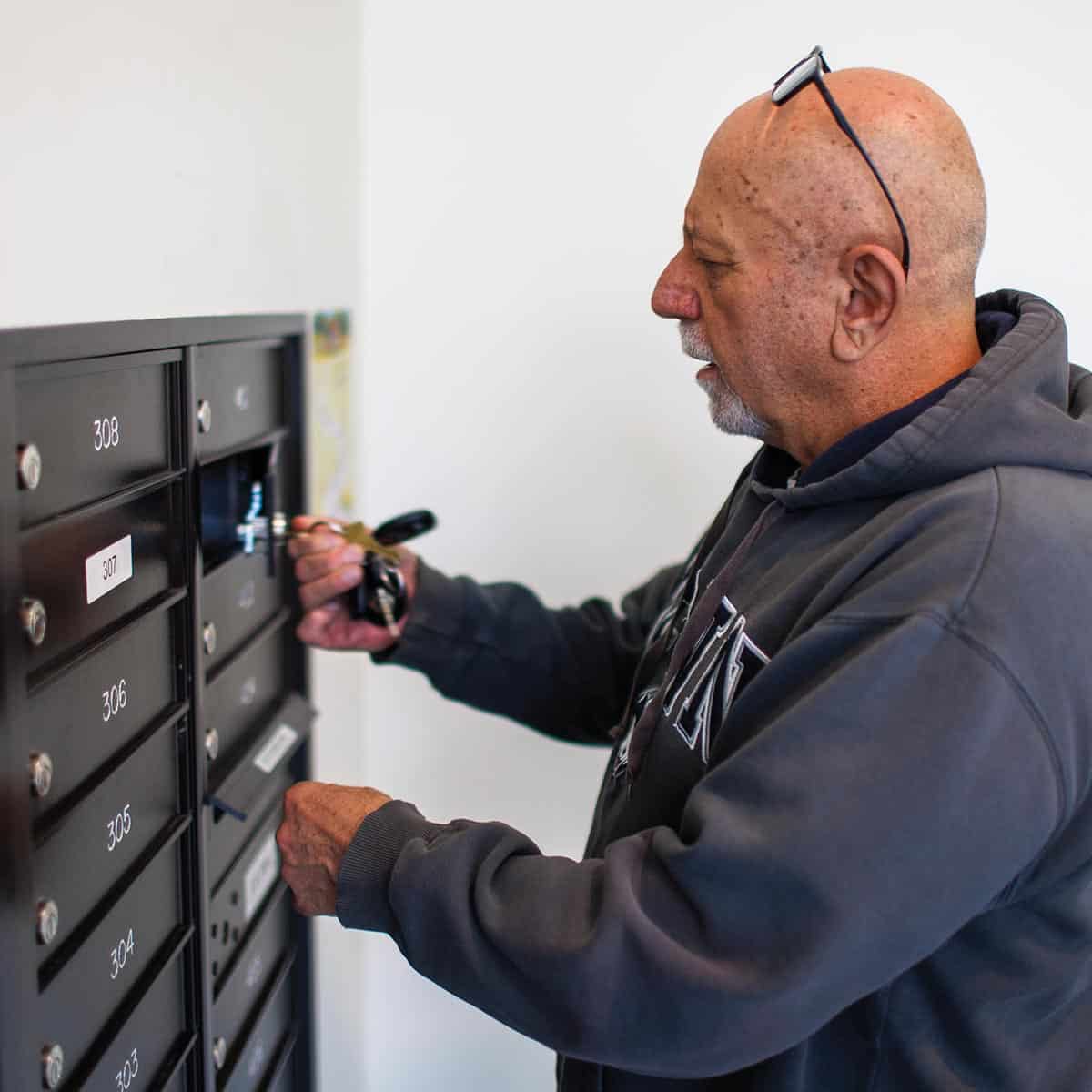
SPOTLIGHT ON PROPERTY MANAGEMENT:
Answering a Collective Call to Action in Solidarity
As a community and as a society, we face enormous challenges. Poverty, unmet needs, and inequality surround us. Worldwide crises, many bearing the fingerprints of the United States, challenge us to support and show solidarity with our fellow beings on the planet. Environmental degradation robs us of much of our hope for the long-term future. And yet the only possible way to address these issues is to come together as we did in 2023.”
These insights from Leo Schiff, a Windham & Windsor Housing Trust board member, shine a light on the environment in which we found ourselves last year and how, in spite of the incredible challenges we faced, our community revealed its deep resiliency again and again.
The work of property management is not routinely recognized as direct-action work. Instead, it’s often viewed through the lens of some of its more bureaucratic tasks, but in reality, WWHT’s property management team works on the front lines with complex human needs every day. And what 2023 highlighted was the importance of doing this work in partnership with fellow community organizations. It highlighted the critical nature of collective responsibility for our community and how some of the deeply entrenched challenges in our community compel us to respond in unison and solidarity with others.
The team, which includes Property Managers, Leasing, Resident Services, and Maintenance, was on the front line of a lot of intensely difficult work this past year. From dealing with residents’ health and well-being, to improving maintenance policies and practices, to an all-hands-on-deck response to a community crisis, the Property Management team has stepped up in a big way over the last 12 months.
“This year presented opportunities to better meet the evolving needs in our community,” Director of Asset and Property Management Ed Bordas shared. “One of the things I’m proud of is how we’ve built stronger relationships with community partners and our residents as we’ve responded to challenges.”
As the broader community and the state grappled with the question of public safety, one of the strategies the team developed was through a stronger collaborative relationship with the Brattleboro police department and their embedded HCRS police liaison, Knowles Wentworth. Through regular monthly meetings, the team became more aware of how and when to engage with members of the police department and which department resources to employ. This collaboration has been extended to our residents through neighborhood meetings attended by WWHT’s resident service staff, property management staff and sergeants from the BPD.
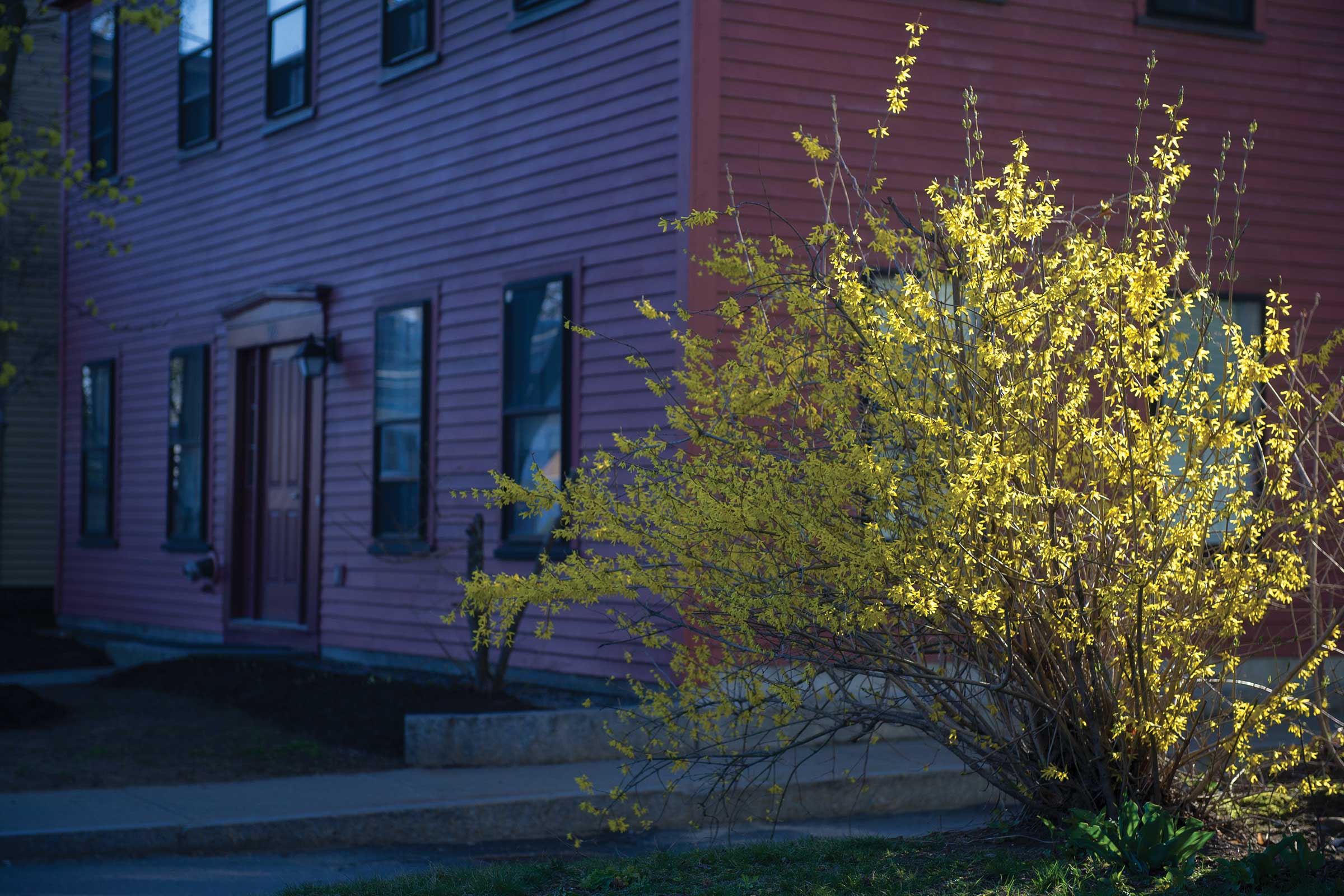
We saw something beautiful enough to cancel out some of the pain.
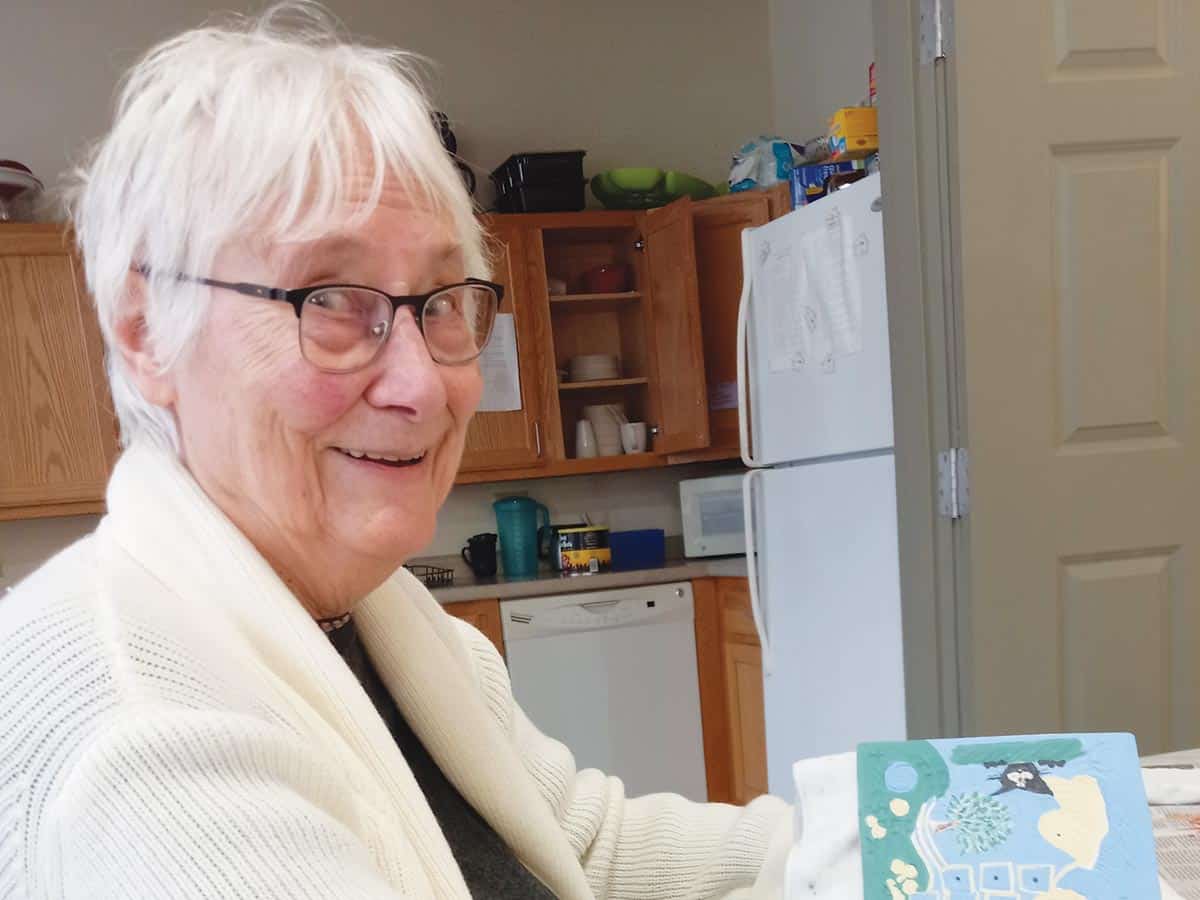
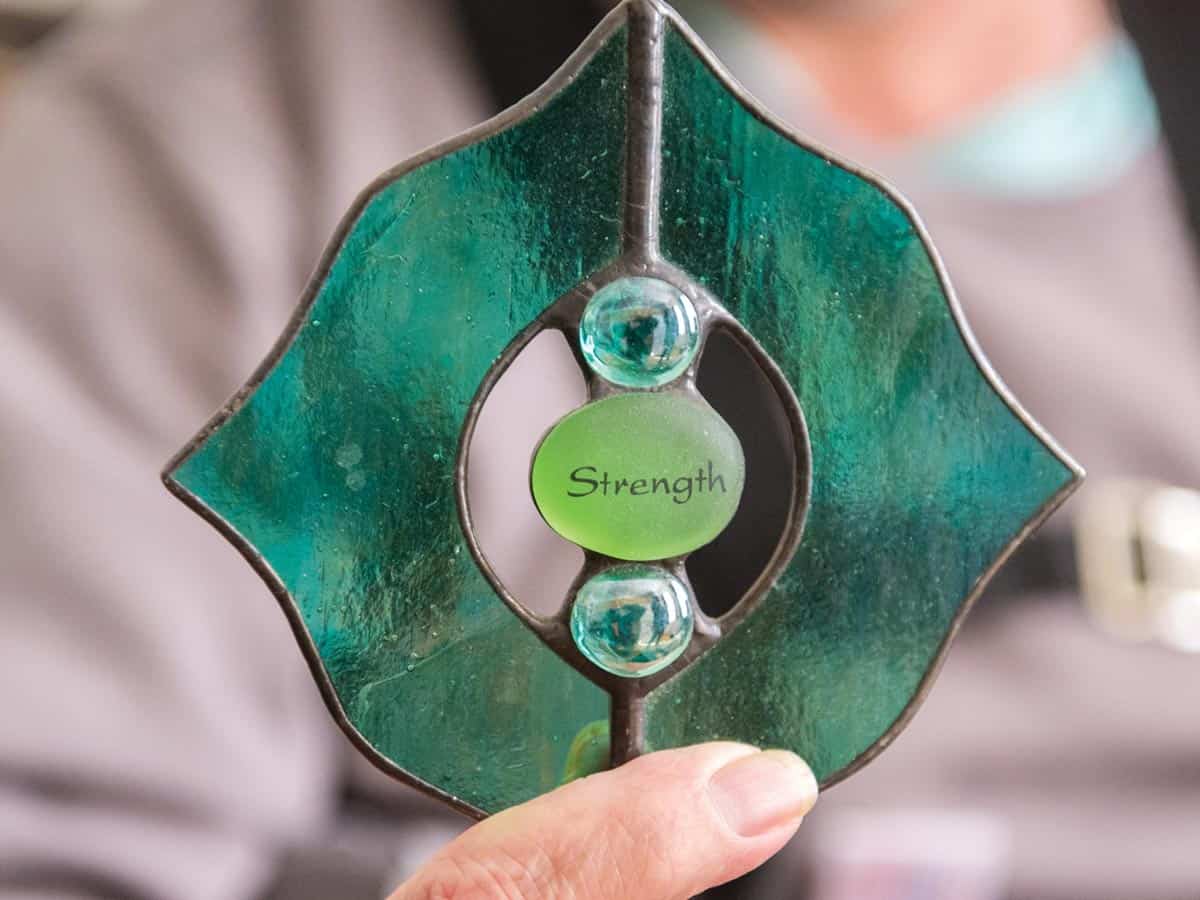
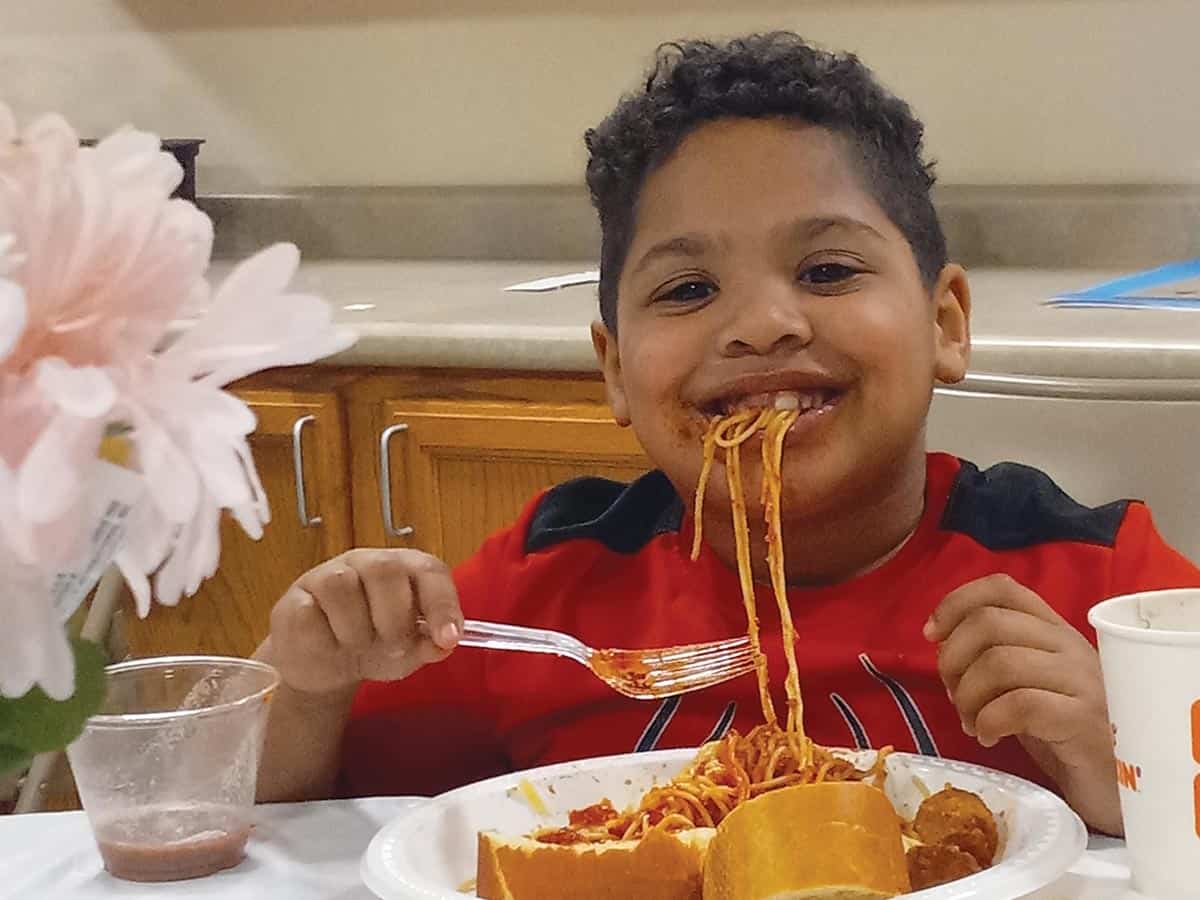
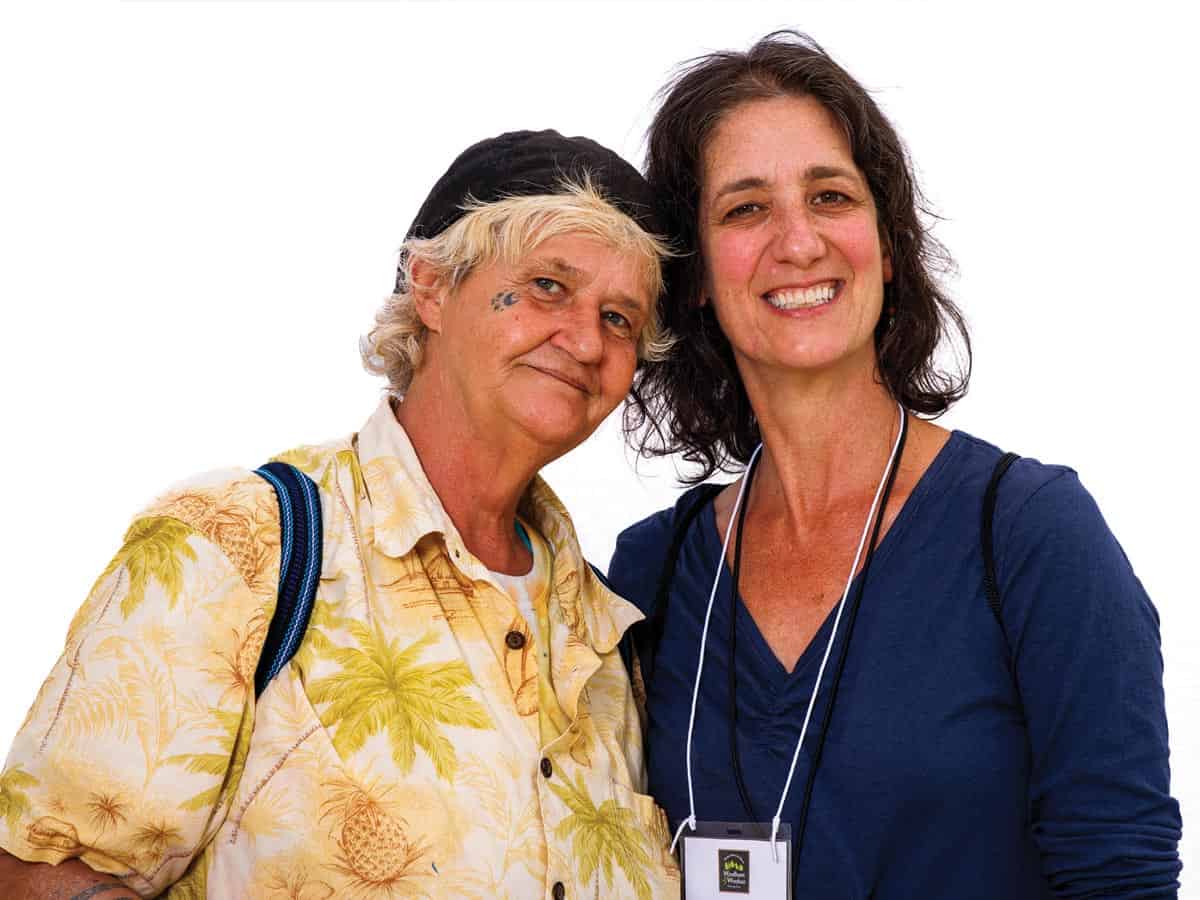




“It’s so apparent how important this engagement is to residents,” says Bordas. “And we benefit from that as well. It’s about leaning in and learning what challenges might be present and then drawing in the right community resources to match the moment.”
“One emerging issue that I’m finding more and more salient these days, is our overall stress levels,” says Wentworth. “As our anxiety about the world and our community safety increases, we withdraw and isolate more, and our sense of community shrinks. This opens the door for more fear about ‘others’. In an effort to make sense of this anxiety, which we can feel in our bodies, ‘others’ become an easy target. This inevitably leads to an increase in tenant conflict. From my perspective, the work of WWHT’s Property Management and Resident Services is more challenging than ever. Keeping conversations alive, community engagement robust, and connections between tenants positive, has never been more important. As the HCRS police liaison, I am grateful to be included in these essential collaborations with WWHT and be able to support them and their tenants in creative ways.”
“Community safety and wellbeing is about connecting people with resources they need,” adds Joyce St. Jean, Resident Services Manager. “Community connections are key to our residents being able to access mental and physical health support, and support to address food security. That’s where resident services and SASH For All comes in. We’re working upstream as mitigators, stabilizers. We have a SASH Coordinator who’s really great at engaging with residents and connecting them to our community partners. We have the SASH Wellness Nurse who routinely measures blood pressure and helps residents sort out their prescriptions or simply access primary care, which research has shown to be a key indicator of long-term health. We also recently added a Social Emotional Wellness Clinician to our SASH For All team. He is a staff member with the Brattleboro Retreat and fills the significant need we see with mental health support.
“These pieces,” St. Jean explains, “work together. Community partnerships and support and community connections are all stabilizing forces in our neighborhoods.”
These two teams, through their distinct and separate roles, each interact with our community of residents through a person-centered lens. Property managers and maintenance techs focus on the safety of our buildings, our residents, and the neighborhoods in which they live, while the SASH For All team focuses on helping residents maintain housing stability through health and wellness supports and empowers residents to build stronger relationships at the property and neighborhood level.
If a challenge does come up in the neighborhood, it is always more complex than what meets the public eye. “We’re often the first on site in a crisis,” says Chuck Carriere, WWHT’s Facilities Manager. “Because we’ve known many of these folks for a long time and see them regularly, we can get right to the problem and hopefully restore some calm.”
Anne O’Connor-Chapman, a Putney Landing resident since 2018 and also a resident board member, says it is quite clear that the staff is committed to being responsive and helpful. “Each staff member, no matter what challenges they are going through, is dedicated to helping the tenants. I think that is wonderful.”
Amidst all of this valuable work being done, an unthinkable tragedy occurred in the community when a cherished member of the Groundworks Collaborative staff, Leah Pritchard Rosen, was murdered. The entire WWHT team responded, without question or hesitation, joining a large group of generous community volunteers, stepping in to provide support to residents at Great River Terrace and The Chalet, a role normally filled by Groundworks staff.
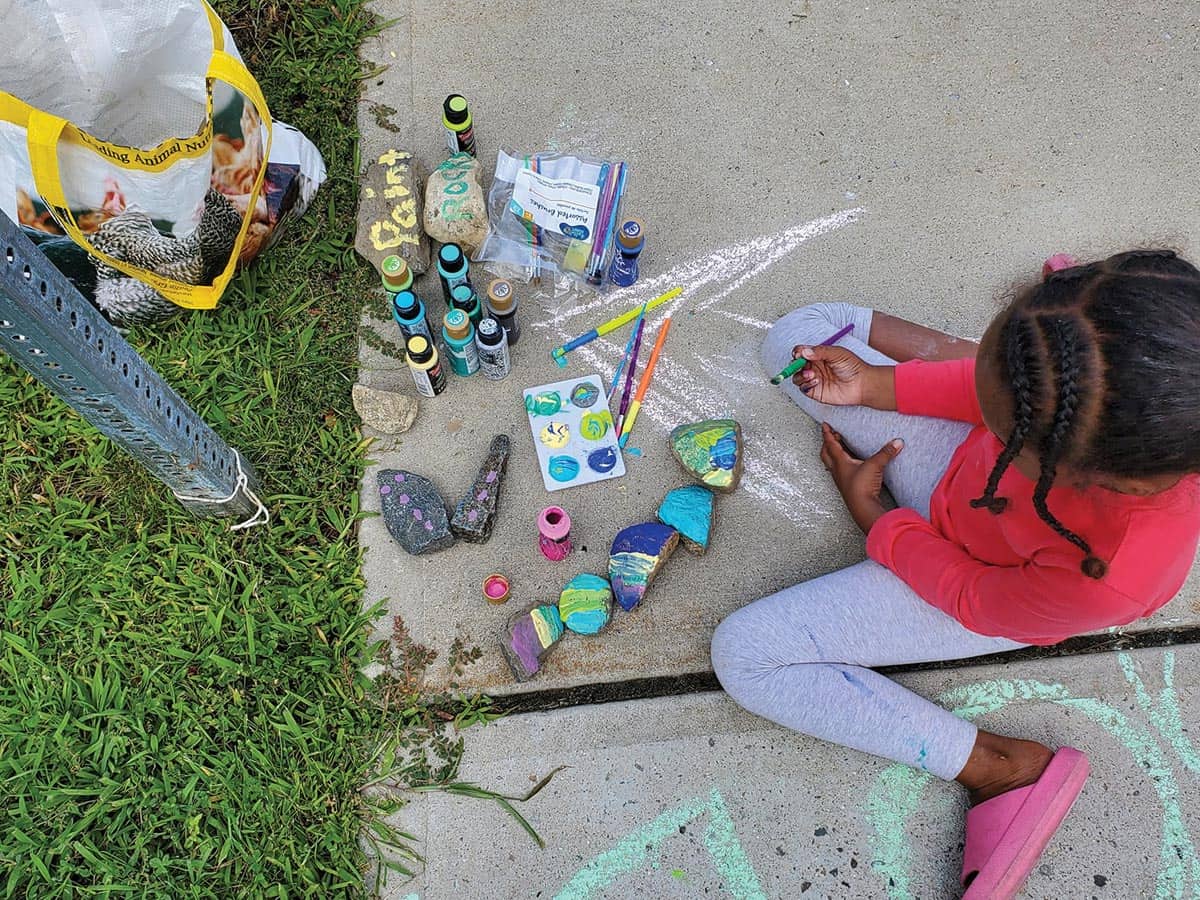
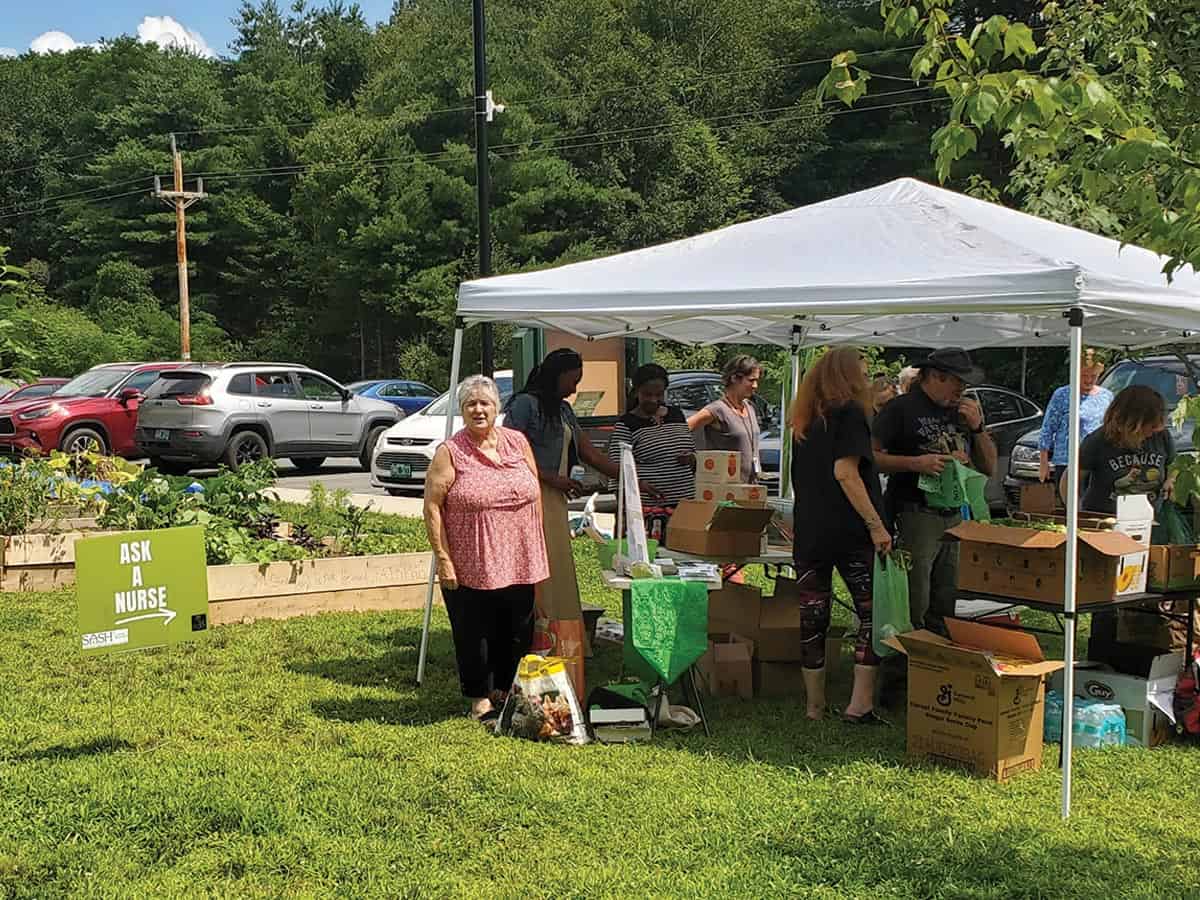
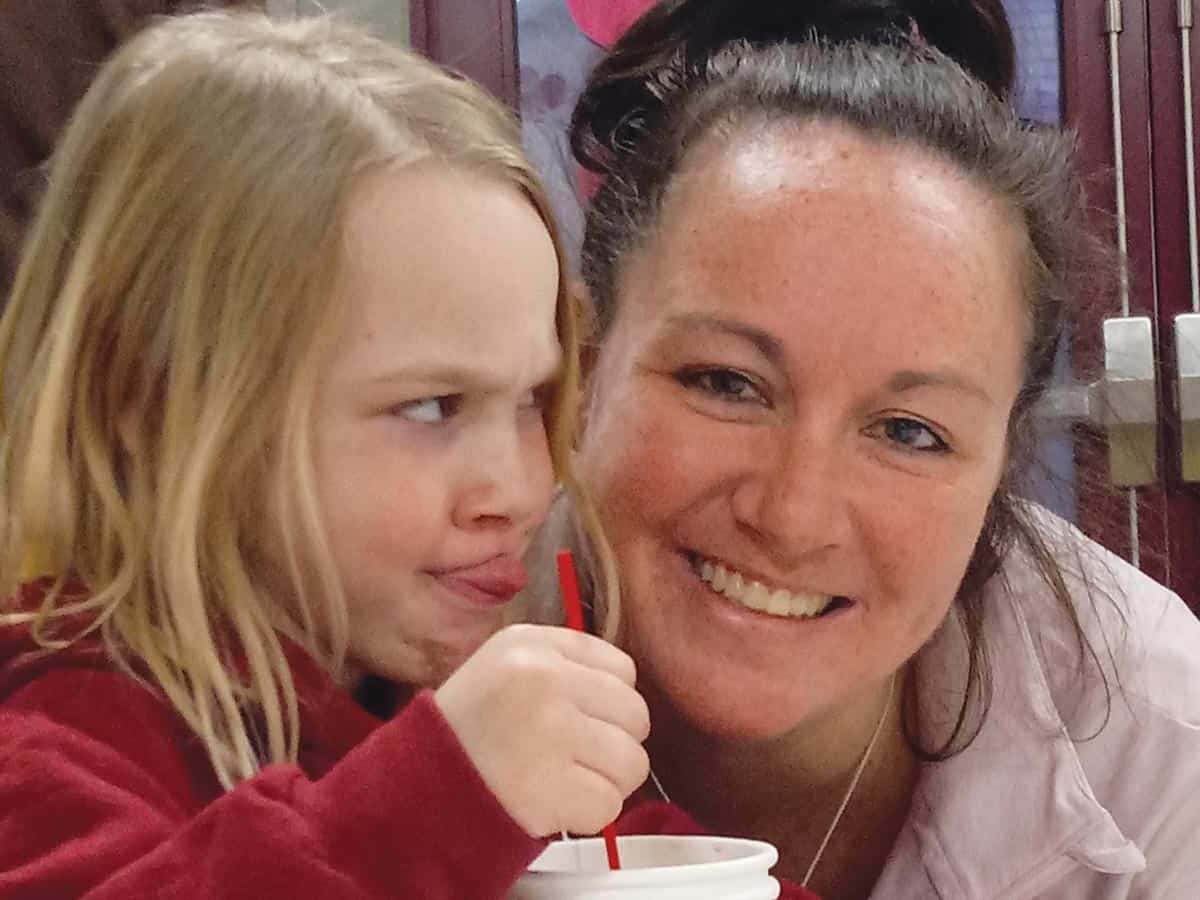
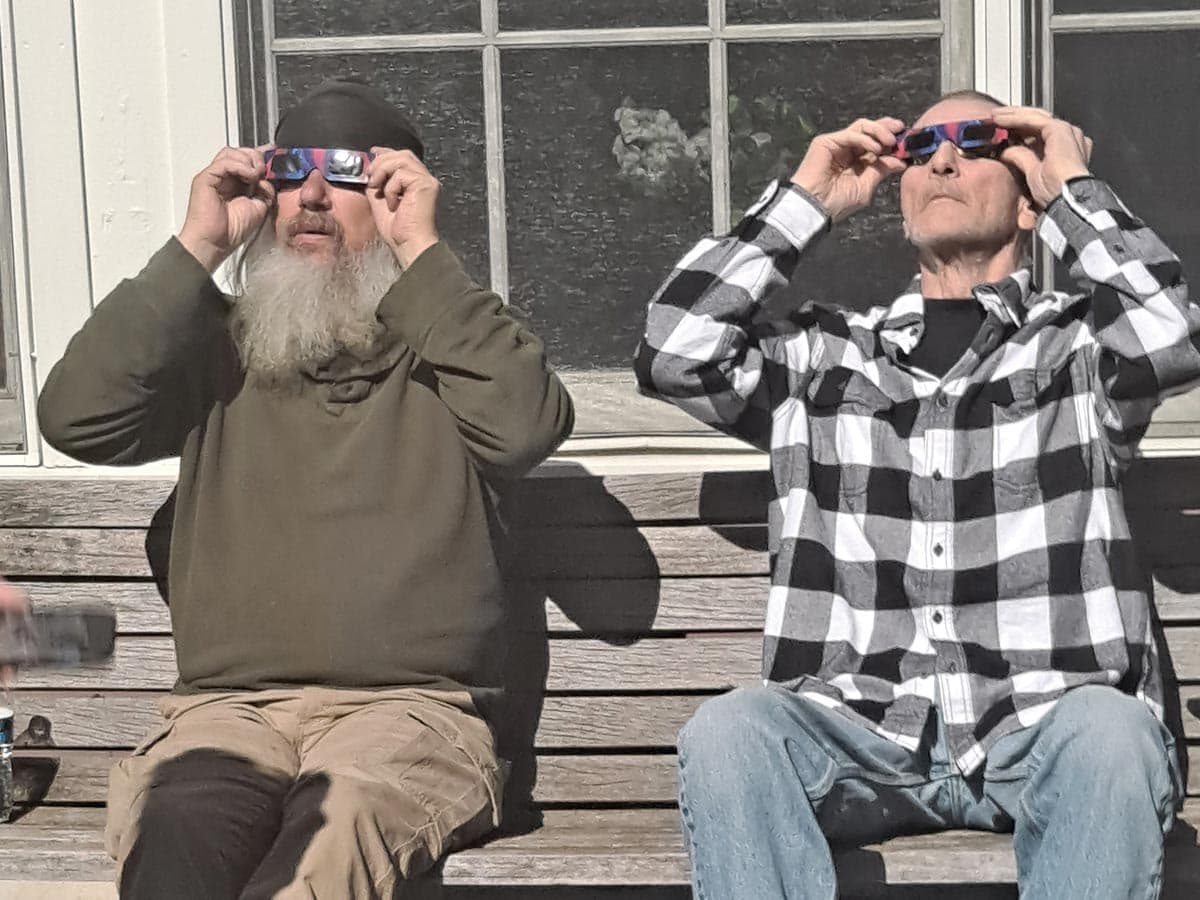




This effort, headed up by community members Lise Sparrow, Fred Breunig, with WWHT’s Elizabeth Bridgewater, took the term collective responsibility, and made it real with 87 volunteers signing on to help so that Groundworks staff could take the necessary time to grieve and take care of themselves.
“It was three weeks of full-time presence at both of the permanent supportive housing communities,” recalls Ed Bordas. “It was a remarkable team effort and a really powerful, visible and tangible support for vulnerable people and an organization that needed our assistance.”
He adds, “I’m very proud of the work we did there. And I think in a lot of ways it strengthened our relationship with Groundworks and with other community partners. It reframed how important it is to engage with others.”
Leo Schiff describes the efforts of the last year as an effective and much-needed practice of solidarity. “We saw something beautiful enough to cancel out some of the pain,” Schiff shared, “Volunteers staffed the permanent supportive housing sites of The Chalet and Great River Terrace to serve those residents. Volunteers conceived and staffed a pop-up Drop-In Center at the Transportation Center. Vouchers were provided for food, and meals were prepared and delivered to newly homeless and vulnerable individuals. Brooks Memorial Library became a post office for close to a hundred homeless people. Showers were offered at the Gibson Aiken Center. Human service workers from other agencies, faith communities, and unaffiliated community members pitched in variously in many ways I’m sure I’m not even mentioning. And folks came together for two vigils to gather, mourn and see our way forward.”
“When we show solidarity with each other, we build the world in which we hope to live.”
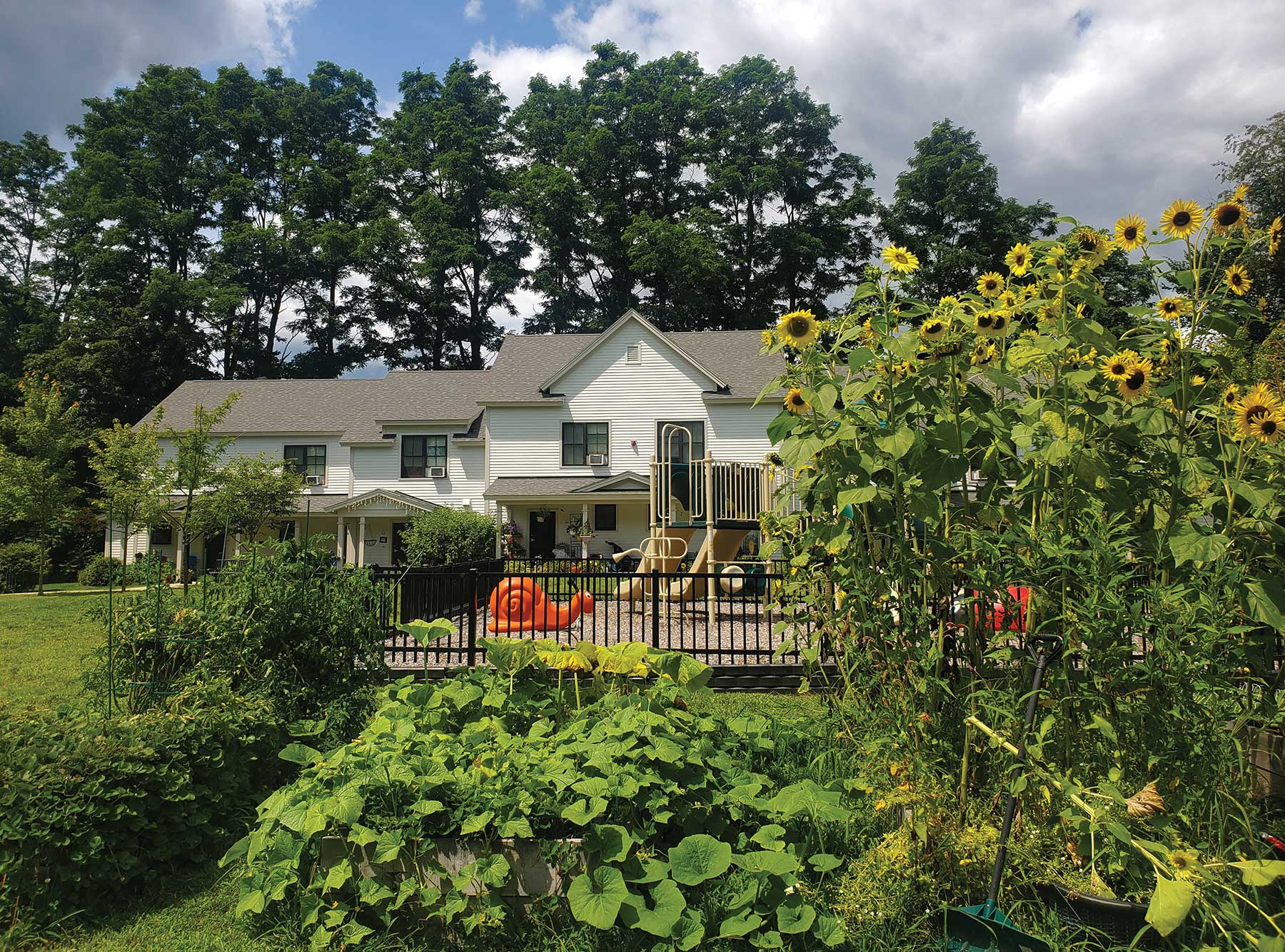

Our Donors:
Your gift matters for so many reasons.
It empowers us to continue our deep community partnerships for resident health, for wellness support, for safety, and for increased opportunities for homebuyers. By working with over 1500 people annually across our two-county footprint, we know that whether it’s a home you own or a home you rent, that home matters.
By supporting an array of affordable housing opportunities, you’re supporting the very heart of our communities. From the architecture to the families and individuals who live in them. We envision a future where anyone who calls southeast Vermont home, can live with stability, access the support of community and health, regardless of economic status or identity. That all have a sense of belonging. Your gift moves us towards this vision every day. Thank you for being part of our movement.
Ongoing support helps us engage communities during development like this new affordable homeownership project on South Street in Springfield that will replace a burned and blighted house with a new, Zero Energy Modular home. The property is being redeveloped under Windham & Windsor Housing Trust’s Shared Equity Program, and presents an affordable homeownership opportunity for qualified homebuyers. Critical gap funding for construction is through the VHFA Missing Middle Homeownership program.
“I am excited to now have the funding in place to replace the burned home and make an affordable home available to a family,” says Bruce Whitney, Director of Homeownership. “And, the home will stay affordable to the next buyers on a permanent basis through the Shared Equity program.”
The multi-phase process for construction began with demolition of the burned structure. Once the site is ready, WWHT will work with a qualified buyer to secure a general contractor. Construction will likely be complete by fall of 2024.
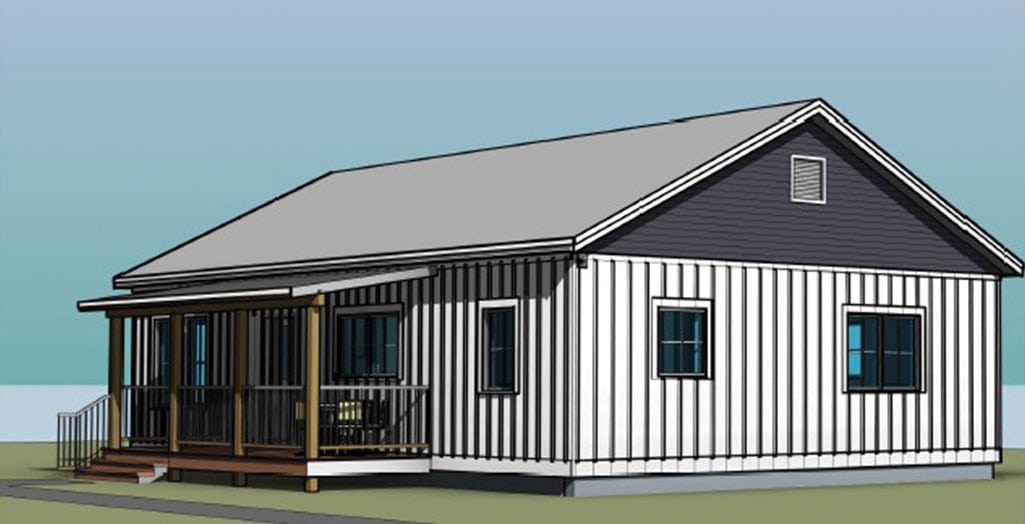

the world in which we hope to live.
—Leo Schiff, WWHT Board member
When we show solidarity with each other, we build
the world in which we hope to live.
—Leo Schiff, WWHT Board member
Financials
Statement of Activities
REVENUES
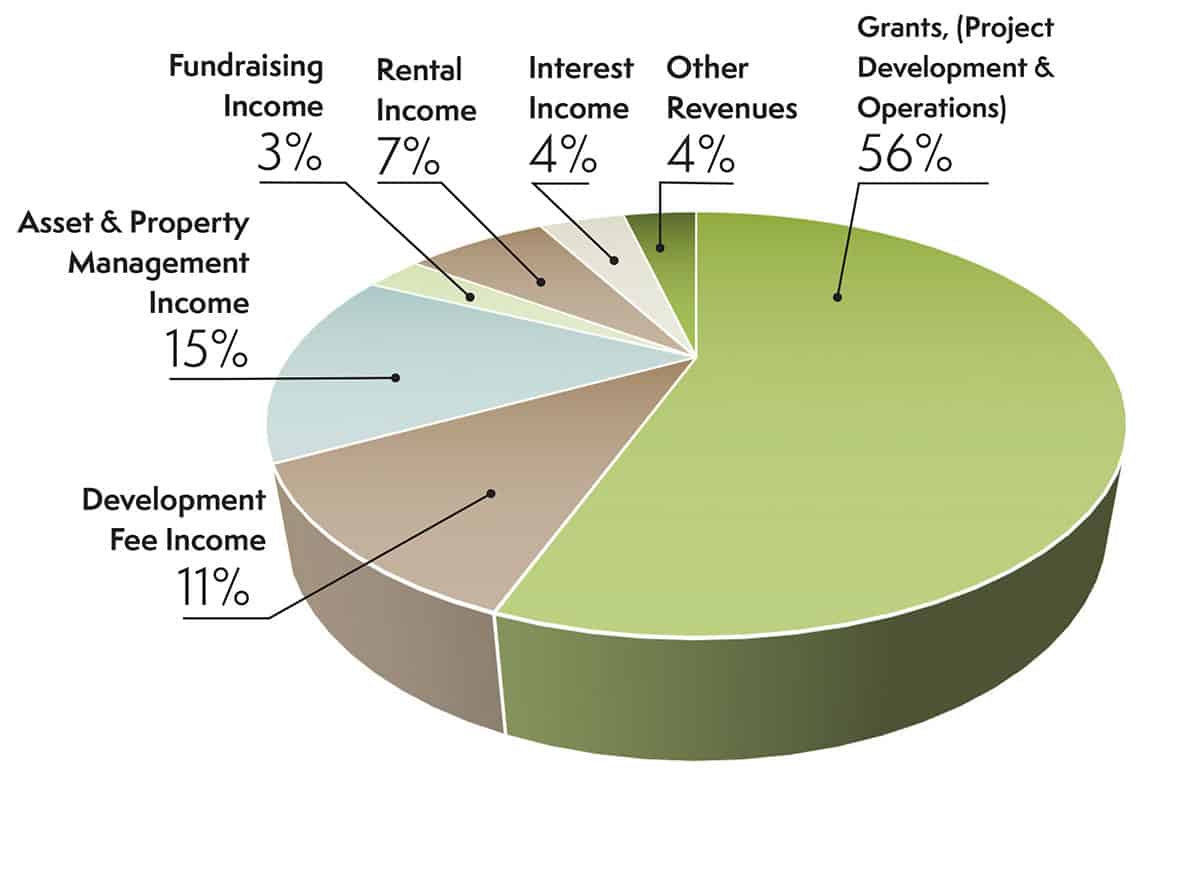
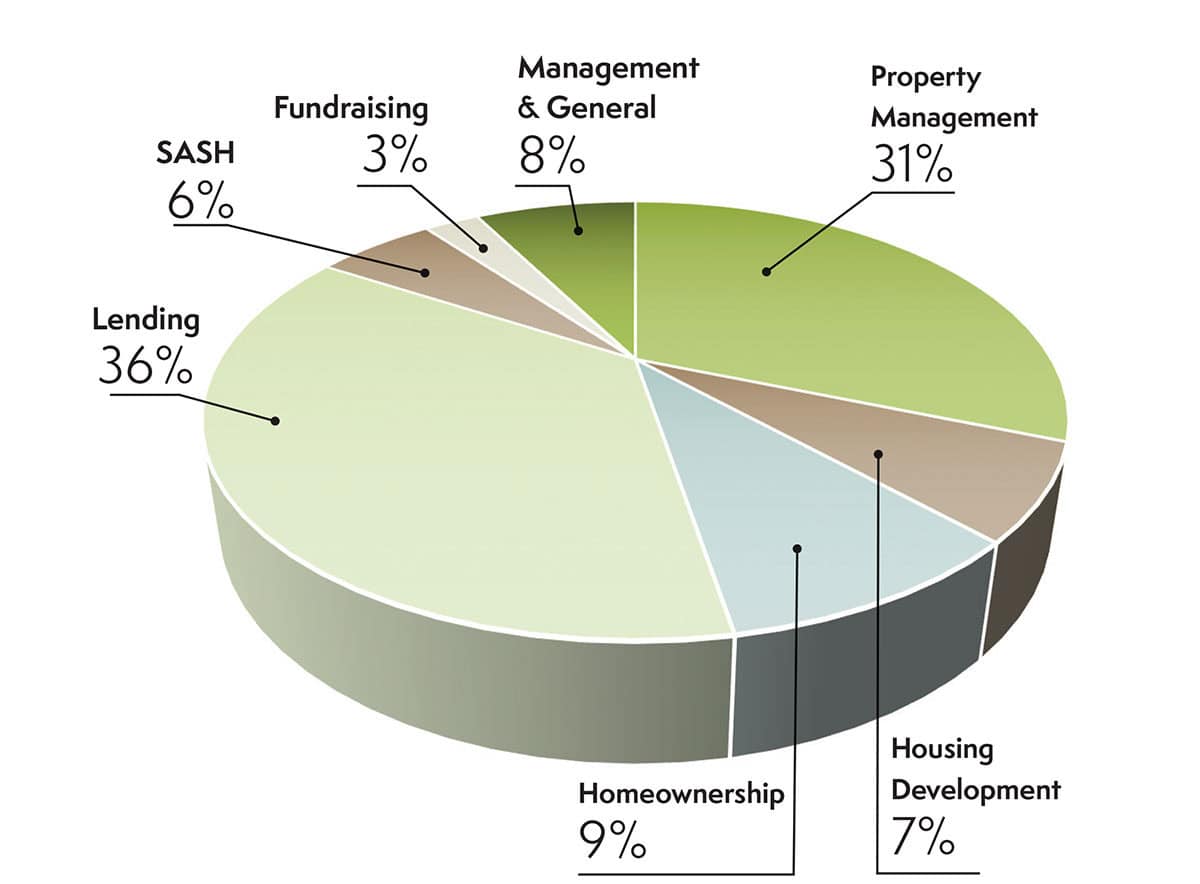
Donations
Individual Donations
Business Sponsorships
Support Windham & Windsor Housing Trust
OUR STAFF

Supporting Stability, Building Resilience
Ed Bordas, Director of Asset and Property Management
Elizabeth Bridgewater, Executive Director
Tara Brown, Lending Manager
Barbara Carey, Sash For All Wellness Nurse
Chuck Carriere, Facilities Manager
Jerry Freeman, Housing Rehab Specialist
Katherine Freyenhagen, Operations and Human Resources Manager
Sandy Garland, Director of Finance
Tim Herzig, Staff Accountant
Rob Hoffman, Property Manager
Joyce St. Jean, Resident Services Manager
Lisa Kuneman, Associate Developer
Elizabeth Lachapelle, Property Manager
Elena Luring, Sash For All Coordinator
Marion Major, Outreach Coordinator
Gary Murano, Maintenance Technician
Peter Paggi, Director of Housing Development
Tony Paraspolo, Maintenance Technician
Jeremy Paquette, Home Ownership Program Coordinator
Susan Rousse, Director of Property Managememt, Compliance & Leasing
Robert Tormaschy, Office Manager
Drew Wark, Maintenance Technician
Bruce Whitney, Director of Homeownership
Katrina Willette, Accounting & Technology Specialist
Chris Zappala, Maintenance Technician
Jennifer Anderson, Sash Wellness Nurse
Molly Bennett, Sash Program Coordinator
Kayla Bernier-Wright, Homeownership Specialist
David Grobe, Home Repair Specialist
Paul Martorano, Multi-Family Rental Improvement Program Coordinator
Ana Mejia, Homeownership Specialist
OUR BOARD
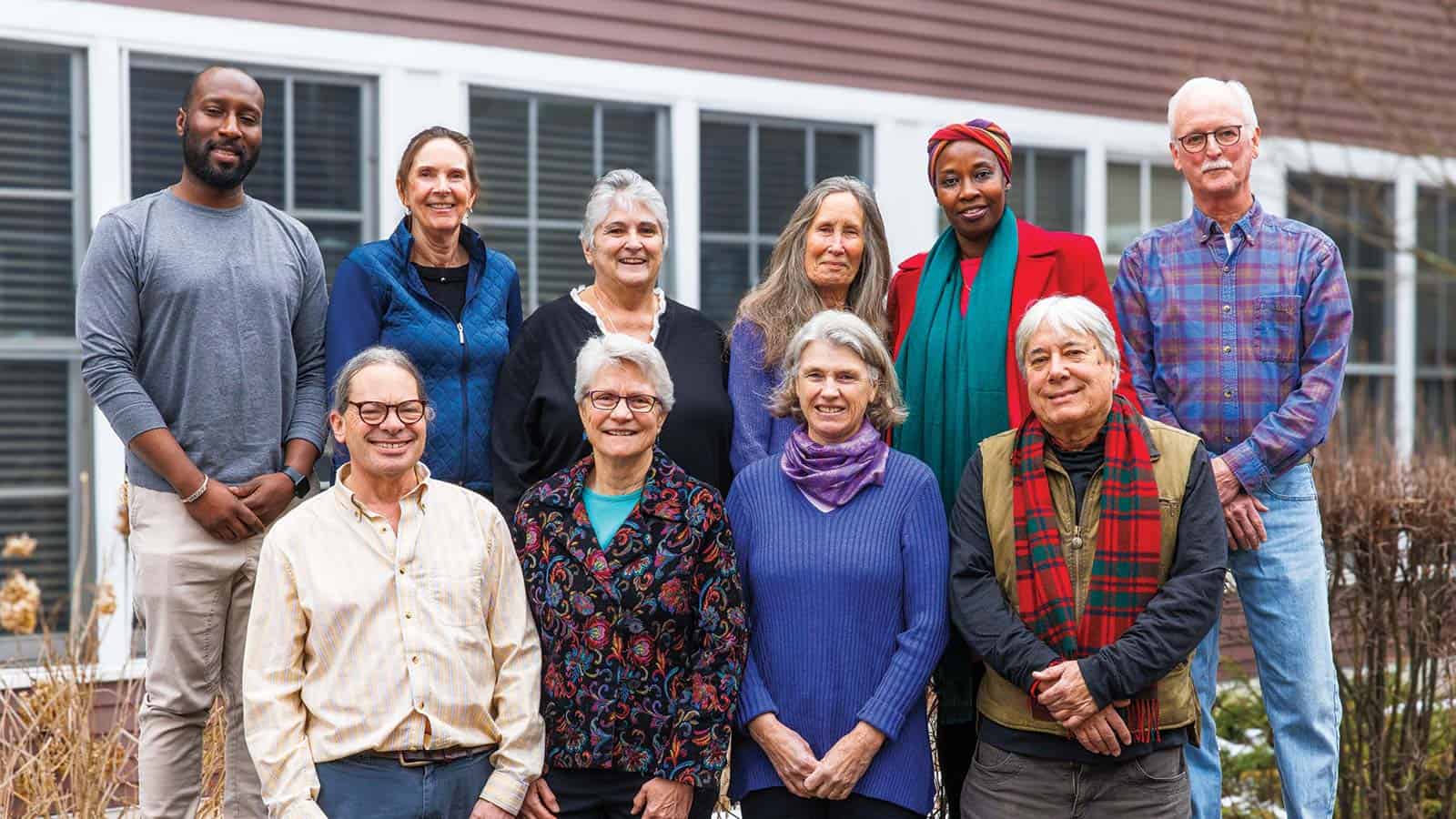
LEADERSHIP Community
Resident Members
Anne Chapman
Ellen Snyder
Dora Urujeni
David Vandervert
Christina Lively*
Samba Diallo
Public Service Directors
Carol Buchdahl
Chuck Collins
Carmina Garciadealba*
Cynthia Gubb
Leo Schiff, SECRETARY
General Community Members
Victor Morrison, PRESIDENT
Margaret Clark, VICE PRESIDENT
Debbie Boyle, TREASURER
Joan Weir
* stepped down during the year
Housing Locations and Services
Areas We Serve
Design: lmwdesign.com | Photography: justinaltman.com and the Windham & Windsor Housing Trust
Design: lmwdesign.com
Photography: justinaltman.com and the Windham & Windsor Housing Trust

